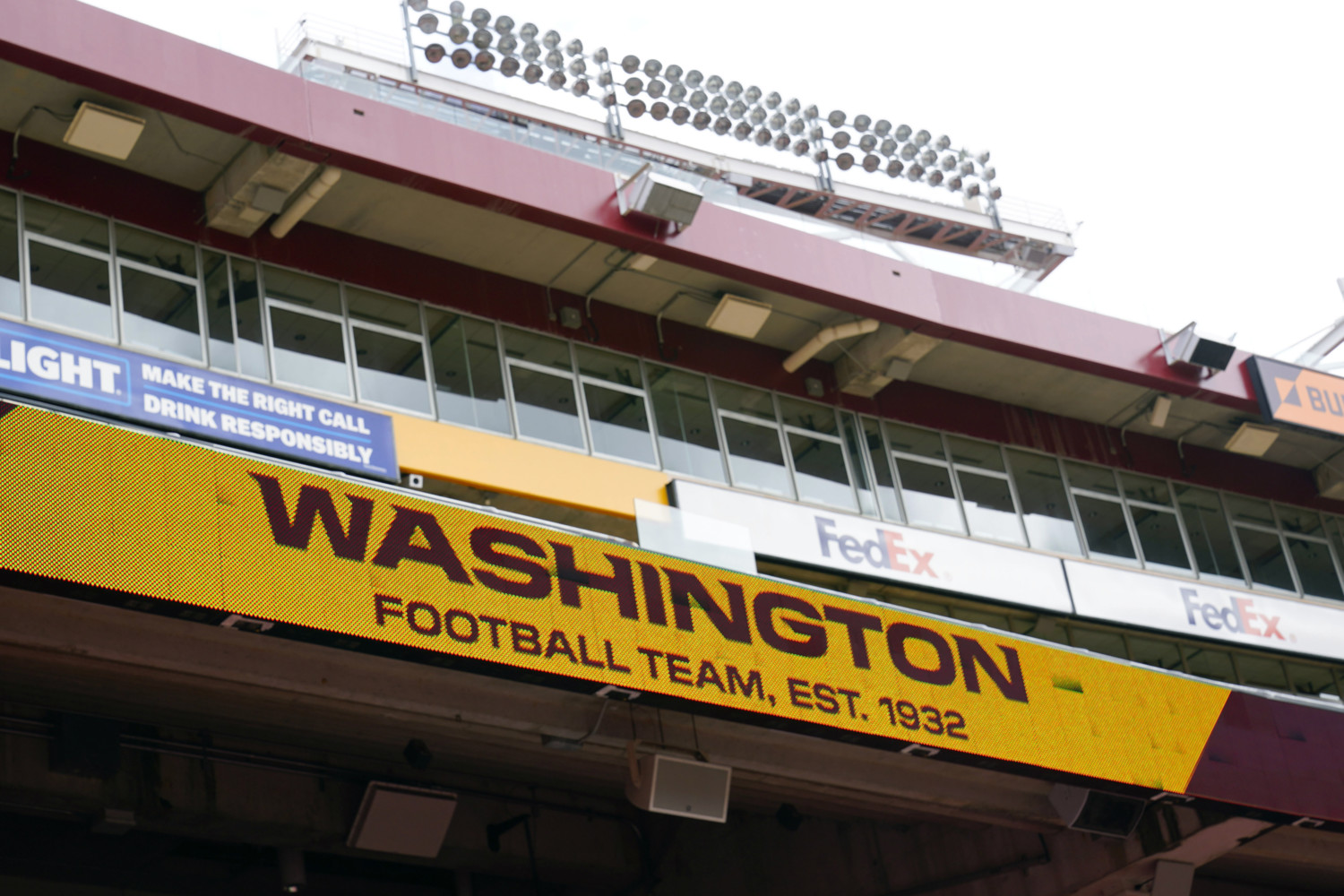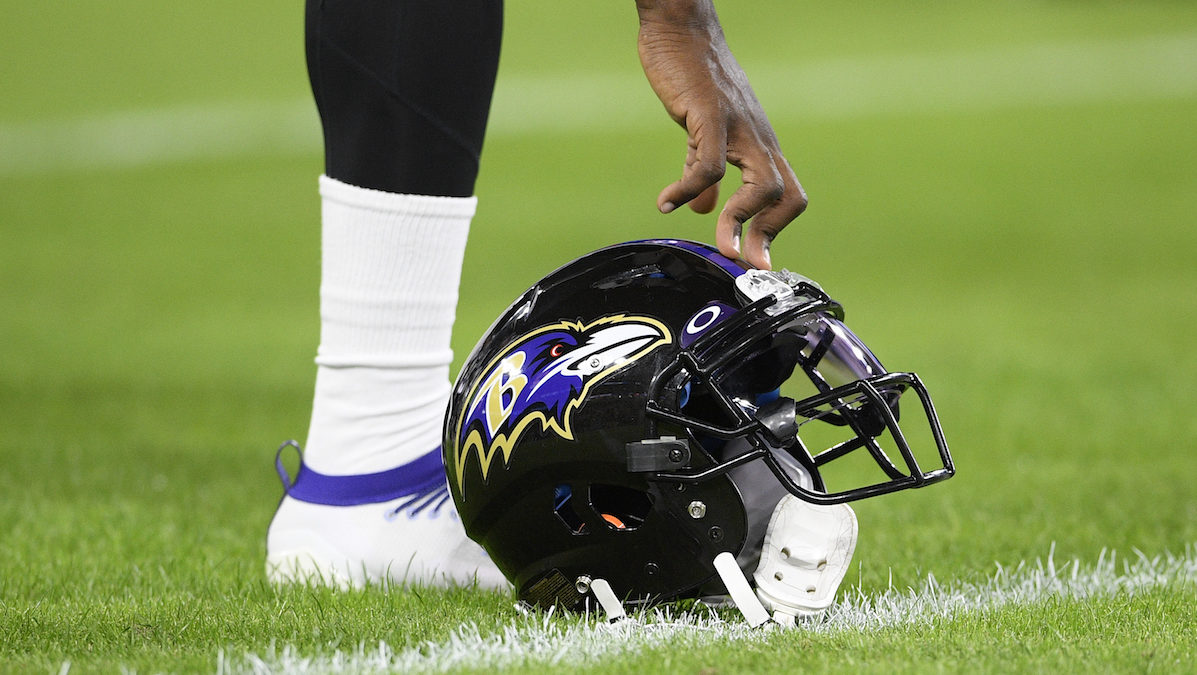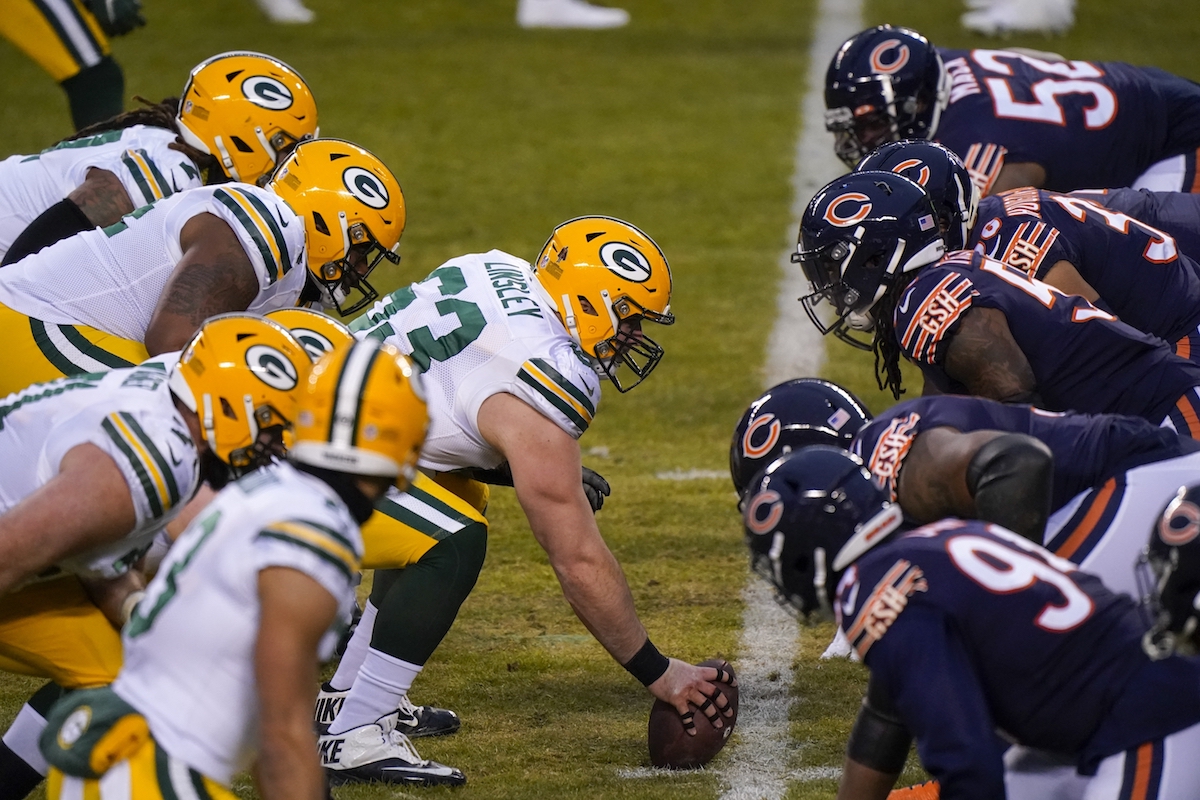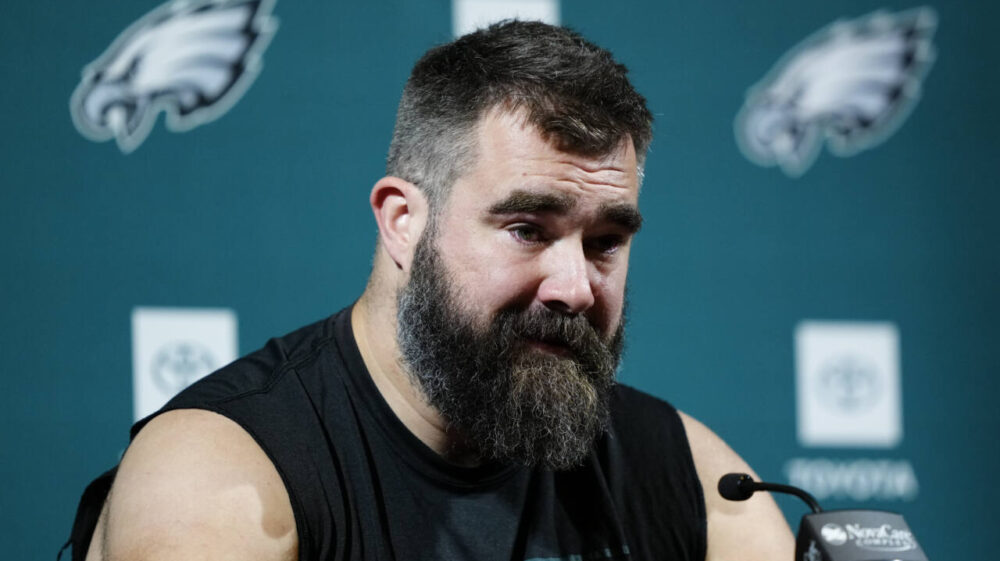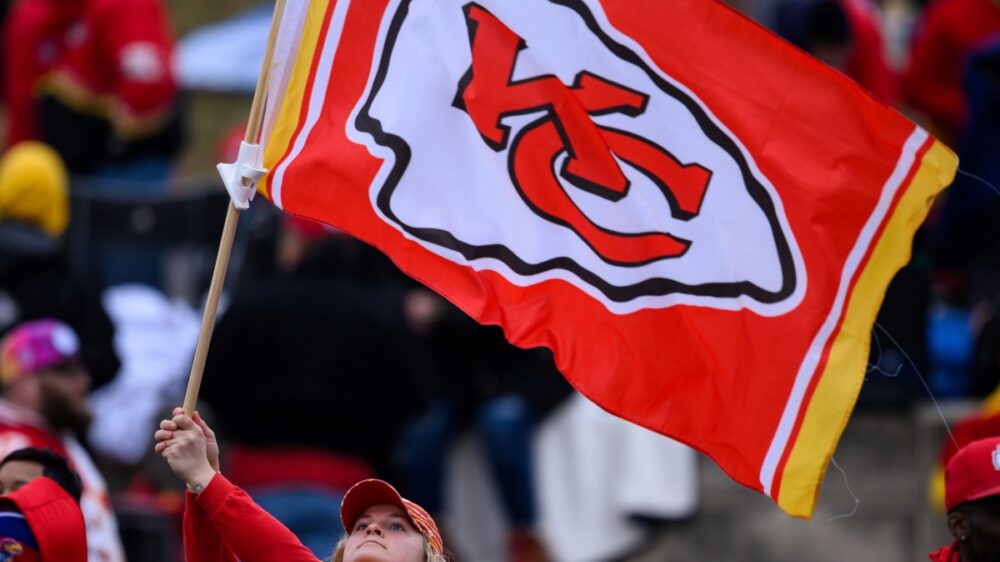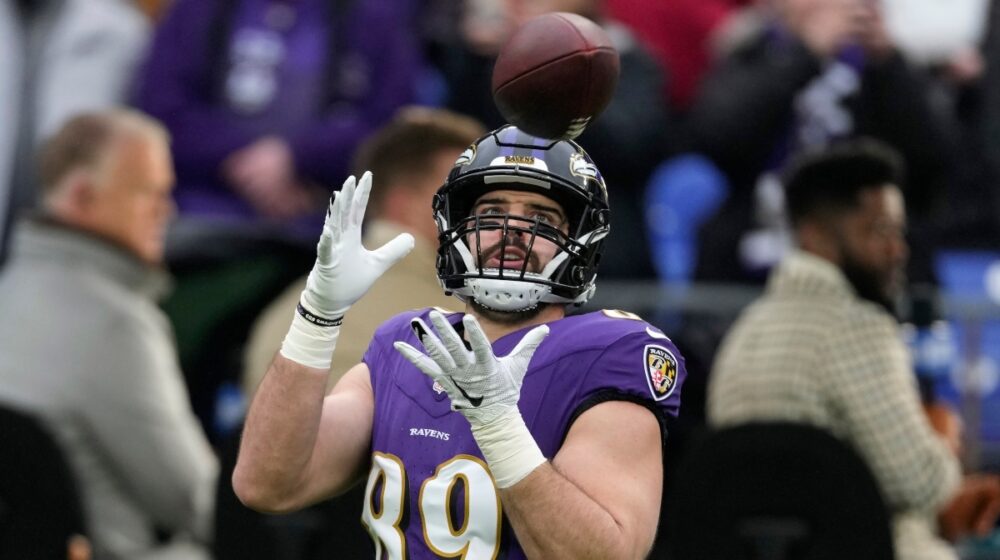NFL team name history: How every team got its name
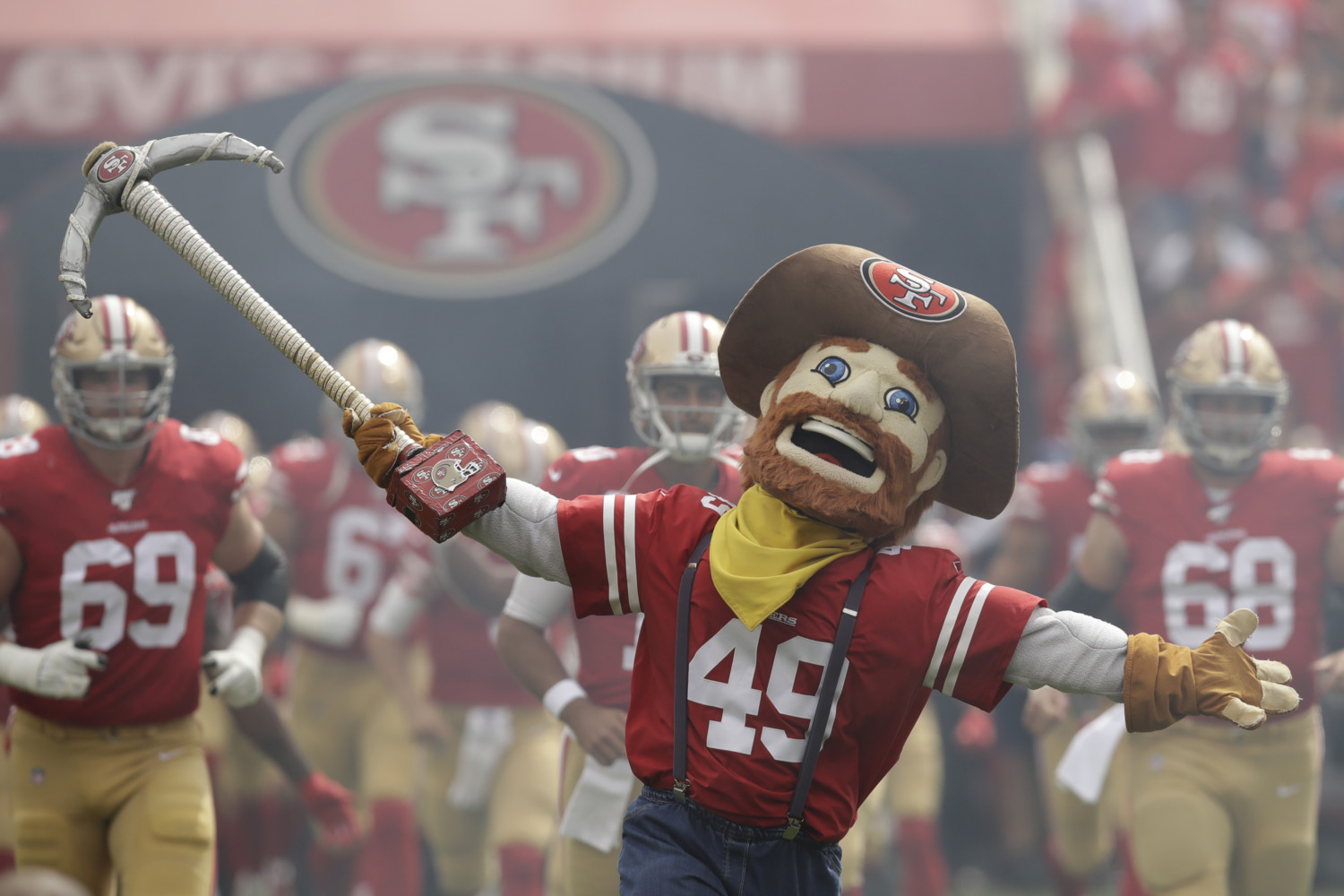
The NFL is home to some of the most iconic franchises in American sports. The logos and colors of many teams have become instantly recognizable, even for people that count the Super Bowl as the only time they watch football in any given year. The names of those NFL teams have also become fixtures in popular culture, with some of them dating back more than a century.
But have you ever wondered what Falcons have to do with Atlanta, or Vikings with Minnesota — or what exactly a Packer is? We’ve got the answers to how every NFL team got its name, including some of the ones that were passed on when the final decision was made.
Arizona Cardinals
The Cardinals don’t exactly have the most intimidating name in professional football but it is one that dates back as early as any in the sport. The team was founded in Chicago in 1898 and played as the Racine Cardinals — named for the street where they played their home games — and Chicago Cardinals from the NFL’s founding in 1920 until the late 1950s, when they moved to St. Louis before eventually settling in Phoenix in 1988. The team’s name came about in 1901, when founder Chris O’Brien got a shipment of faded maroon jerseys that he called “Cardinal red.”
In case you wondered, yes, the namesake bird can actually be spotted in much of Arizona, including in Phoenix.
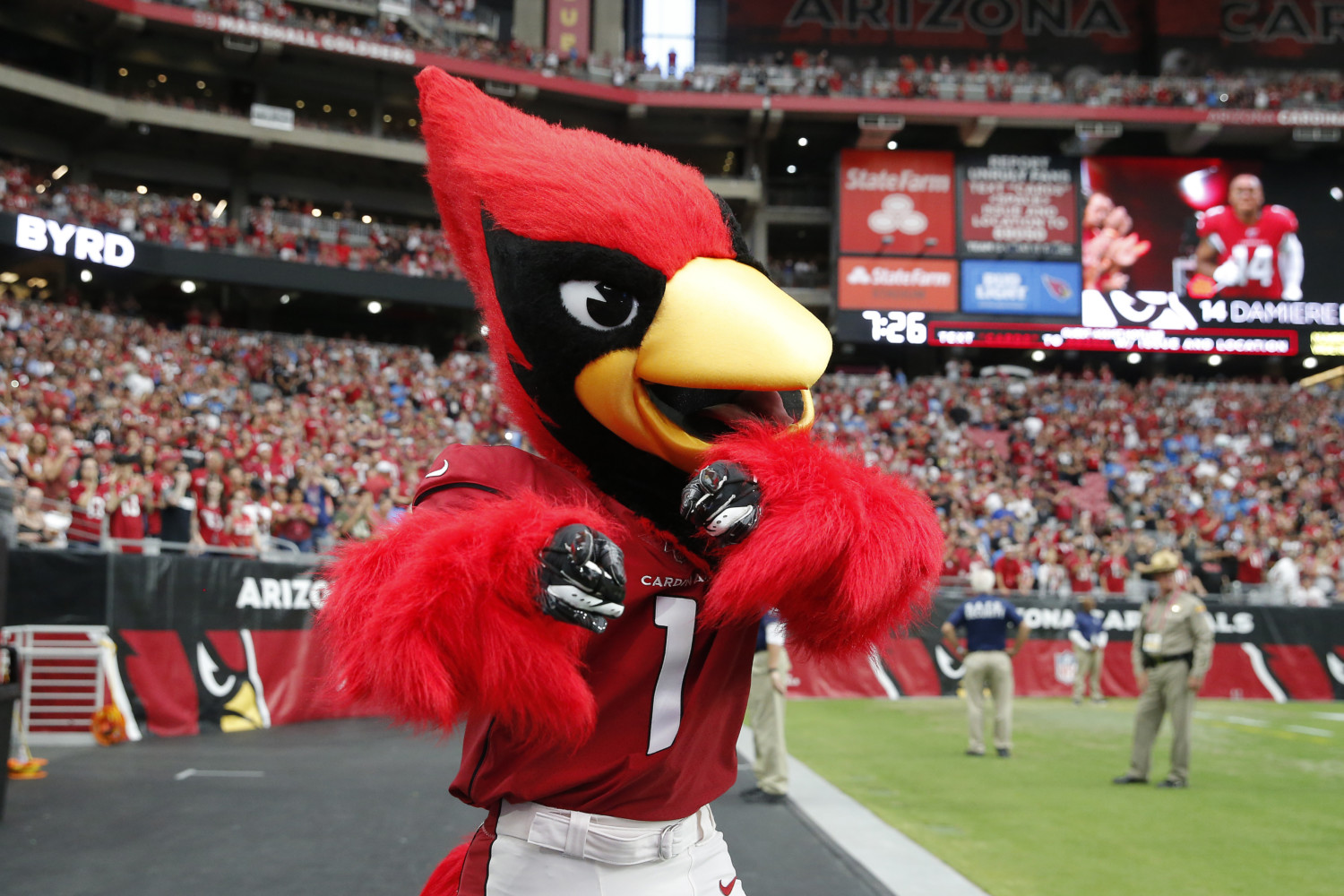
Atlanta Falcons
In 1965, the year before the Atlanta Falcons were to begin playing, the team’s leadership held a contest, asking local people to submit potential names for the new NFL franchise. Suggestions included the Firebirds, Knights, Lancers, Rebels, Thrashers and Thunderbirds — but the winning name came from a schoolteacher named Julia Elliott. She wrote that Falcons should be the name because “The falcon is proud and dignified, with great courage and fight. It never drops its prey. It’s deadly and has a great sporting tradition.” More than 50 seasons later, Elliott’s suggestion still has wings.
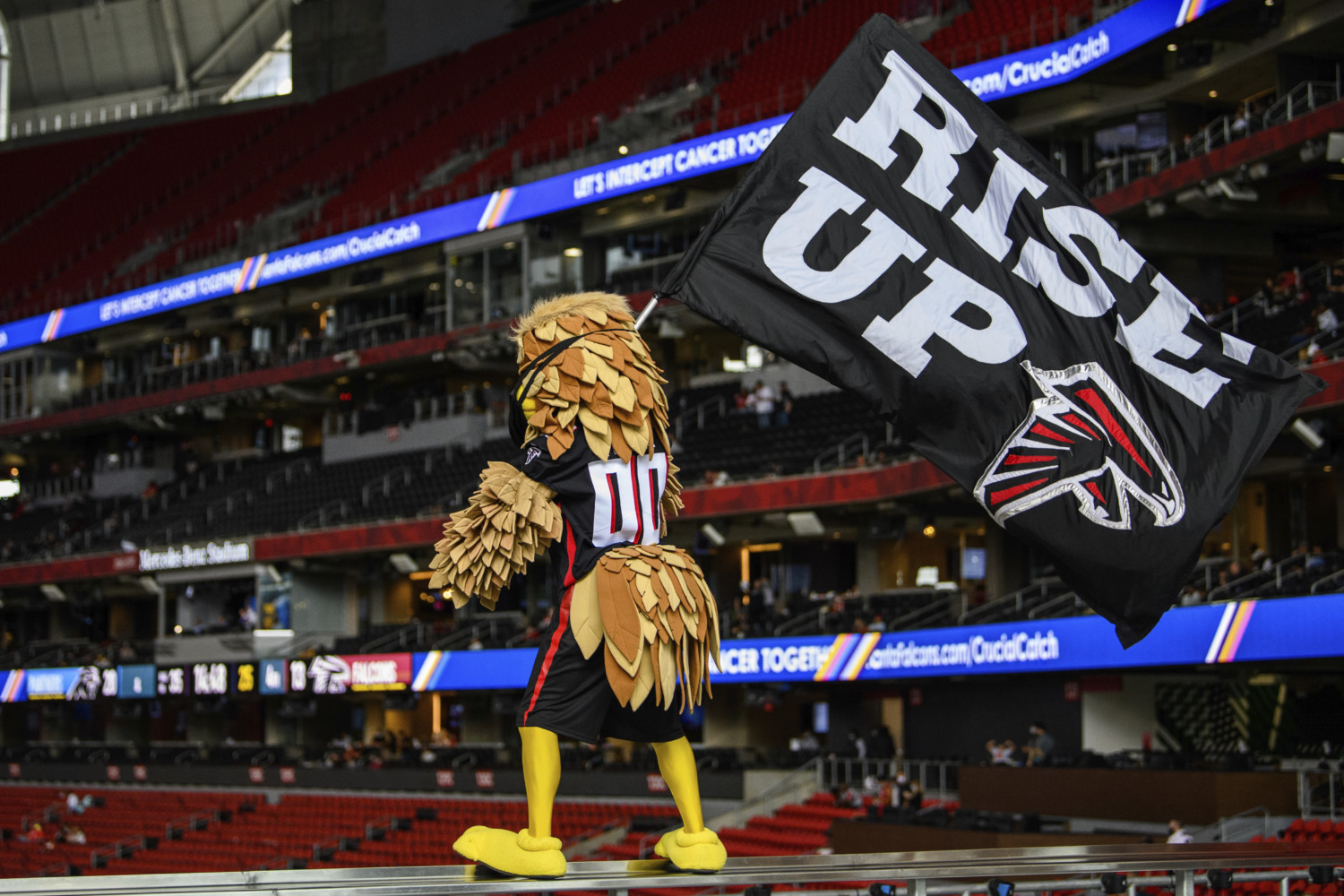
Baltimore Ravens
The ominous black raven is a bird that can be spotted regularly across Maryland but Baltimore’s NFL franchise got its name from the pages of poetry. The name “Ravens” was suggested because of its ties to writer Edgar Allen Poe, one of Baltimore’s most famous former residents. It was among a list of dozens of possible names the franchise was juggling in the mid-1990s when the new team came to the city from Cleveland. The runner-up monickers were the Americans and the Marauders when more than 33,000 local people were polled.
By the way, the team’s wing-flapping mascot happens to be named Poe.
Buffalo Bills
Many people have undoubtedly been somewhat confused when looking at the iconic bison logo of Buffalo’s NFL franchise and wondering what that has to do with the name “Bills.” The team’s name dates back to the 1940s and is a wordplay that calls to mind one of America’s great folk heroes, “Buffalo” Bill Cody. The name was originally suggested by a fan named James Dyson, who won $500 for his idea, and was carried over when the franchise joined the AFL as a founding member in 1959.
While Cody apparently never spent much time in the city of Buffalo, he did bring his famous “Wild West Show” to the town in 1901, according to The Buffalo News.
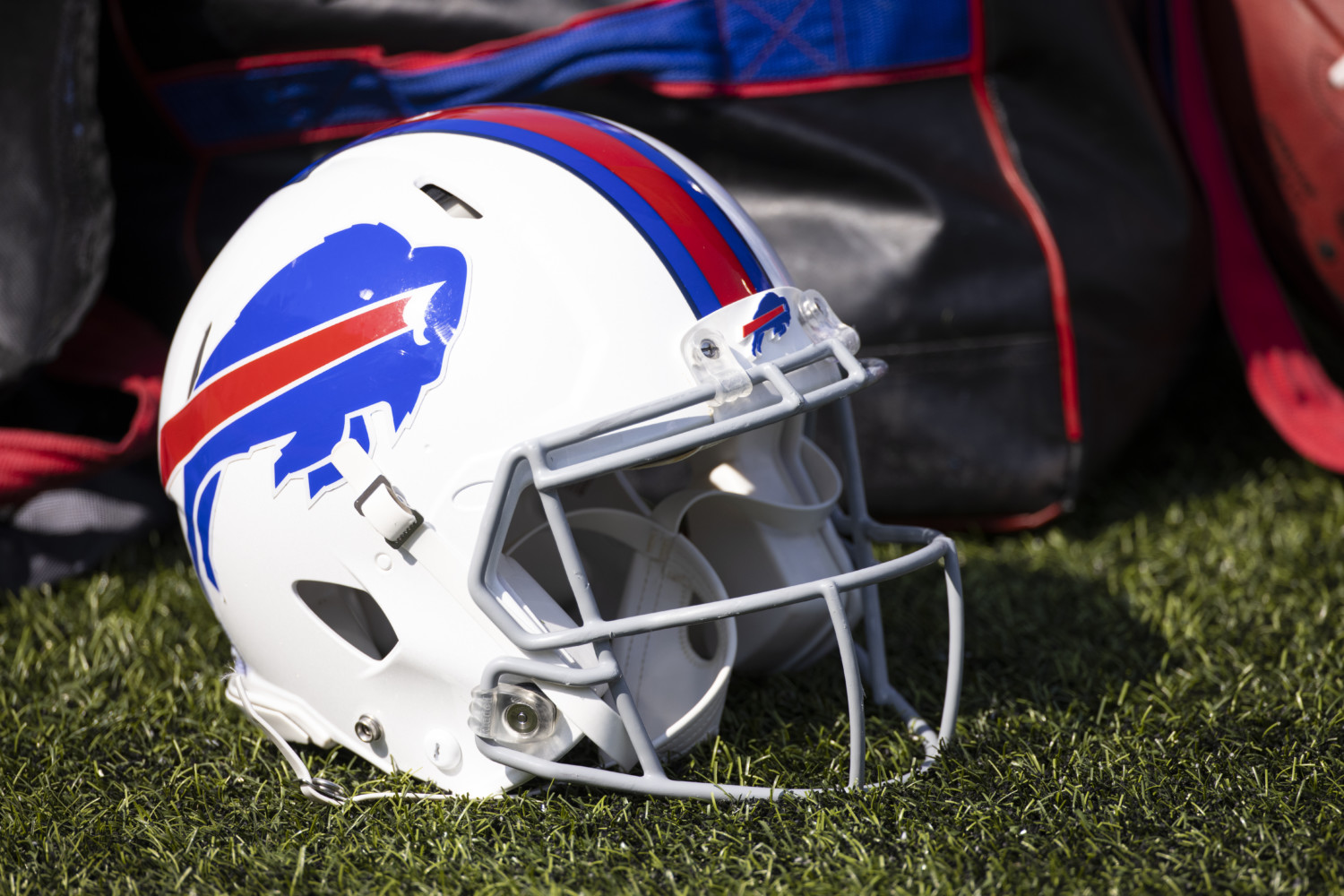
Carolina Panthers
In 1993, the city of Charlotte was awarded the NFL’s newest franchise, beating out fellow finalists Baltimore, Jacksonville, Memphis and St. Louis. As for the new team’s name, it has more to do with the vision of the original owners than an actual tie to the region of the Carolinas, which is not known as a habitat of panthers. “It’s a name our family thought signifies what we thought a team should be: powerful, sleek and strong,” said Mark Richardson, son of founder Jerry Richardson.
The NFL actually pressured Jerry Richardson to move away from “Panthers” and consider the name “Rhinos,” reportedly being concerned that a team called the Panthers with black used predominantly in its color scheme would appeal to “street gangs.”
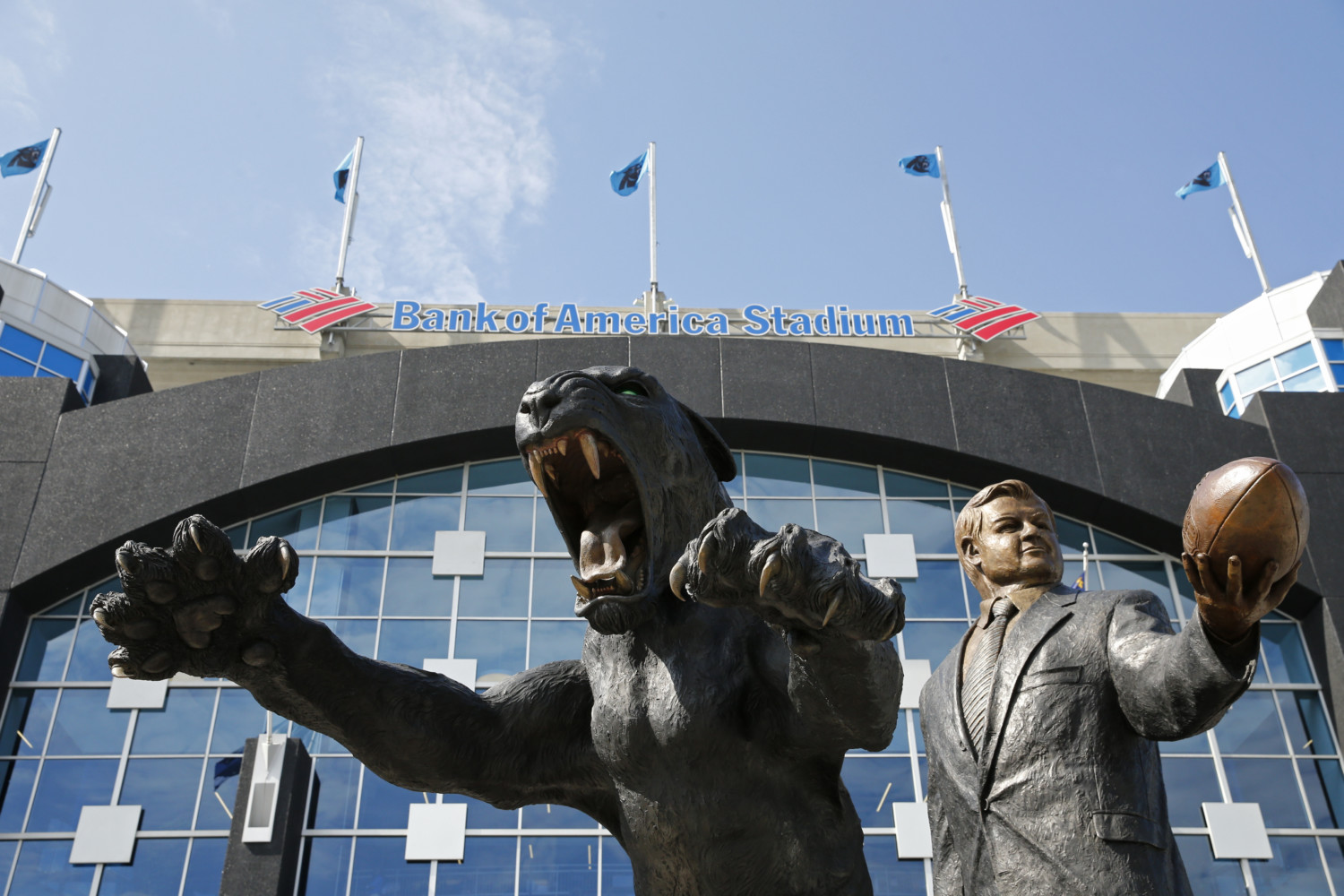
Chicago Bears
A charter member of the NFL, Chicago’s vaunted football franchise was originally called the Staleys, named for the Staley Starch Company, which funded its founding in 1920. Thankfully, that name didn’t last long, with Staley representative and then owner George Halas changing it to the Bears in 1922. “Papa Bear,” as Halas would become known, chose that name as a tribute to Major League Baseball’s Chicago Cubs, who let the fledgling football franchise use Wrigley Field for its games at the beginning.
As far as what bears have to do with the Midwest’s biggest city? Not much, as the fearsome animal can’t even be found in the state of Illinois these days.

Cincinnati Bengals
The Cincinnati Bengals first kicked off in the AFL in 1968 but the team’s name had been around long before that. Pro football franchises named the Bengals had existed in the Queen City since the 1920s, despite the fact that Bengal tigers make their home roughly 8,000 miles away in south Asia. When football icon Paul Brown founded the team in the mid-1960s, he chose the name to honor those former franchises that had played in Cincinnati previously, true to his reputation as a lover of the sport’s history.
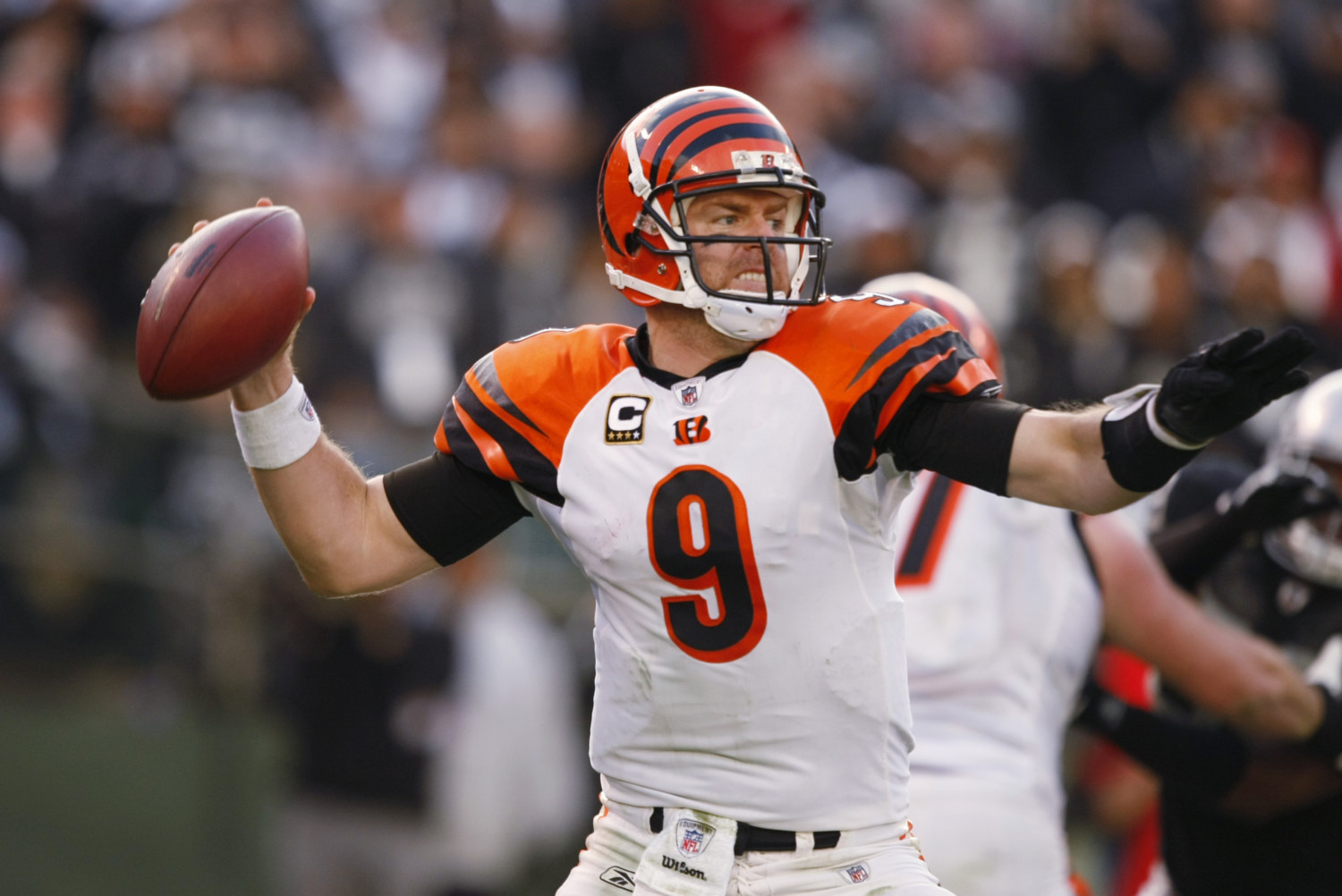
Cleveland Browns
Speaking of Paul Brown, he’s the only former coach in any of the major American pro sports to actually have a team named after him, which is a pretty remarkable honor. While the Browns team name has taken plenty of crap — pun fully intended — since it debuted in 1946, Cleveland football fans are plenty proud of its ties to the franchise’s first coach. Brown had racked up an incredible record coaching high school football in Ohio and led the Ohio State Buckeyes to their first national championship. The team’s founders hired Brown to lead their team and named the squad after him. He’s pictured at right here.
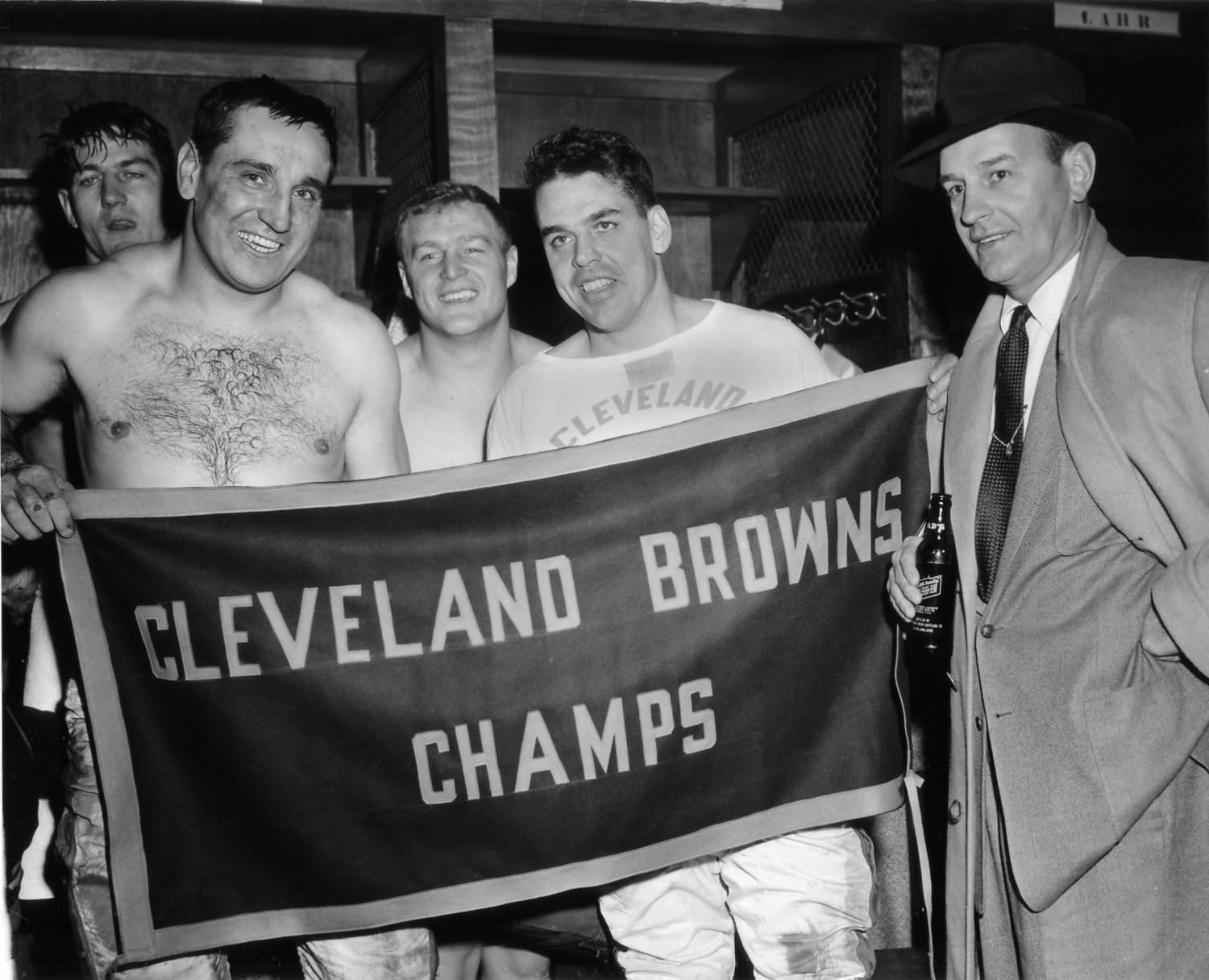
Dallas Cowboys
The Cowboys boast one of the most recognizable names and logos in American sports, but that was not the team’s original title. When Dallas landed an NFL franchise that would begin play in 1960, they were originally called the Steers but that name was quickly changed to the Rangers. However, before ever playing a game, the team’s name was switched one last time to the Dallas Cowboys in order to avoid confusion with the now-defunct Dallas Rangers minor league baseball team.
Meanwhile, the world-famous star logo used by the Cowboys was designed by the team’s original equipment manager, Jack Eskridge.
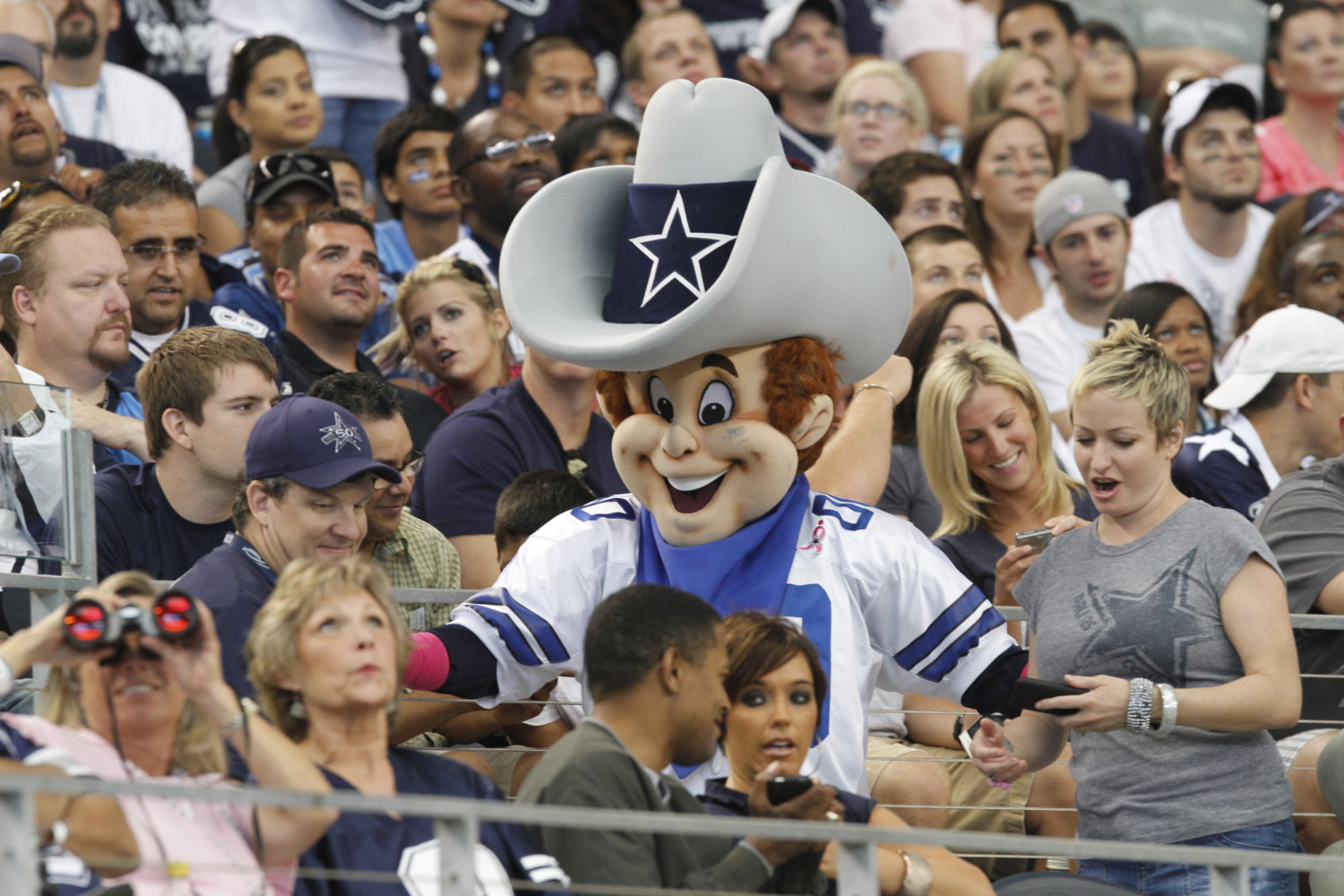
Denver Broncos
Like a few other team names around the NFL, the Denver Broncos got theirs from a contest that asked for submissions from eager fans. In 1960, the year the new AFL franchise debuted, team brass received hundreds of write-in submissions, eventually settling on one suggested by a man named Ward Vining of Lakewood, Colorado. They were actually the second pro sports team in the Mile High City to have that name, following a baseball team that started in 1921.
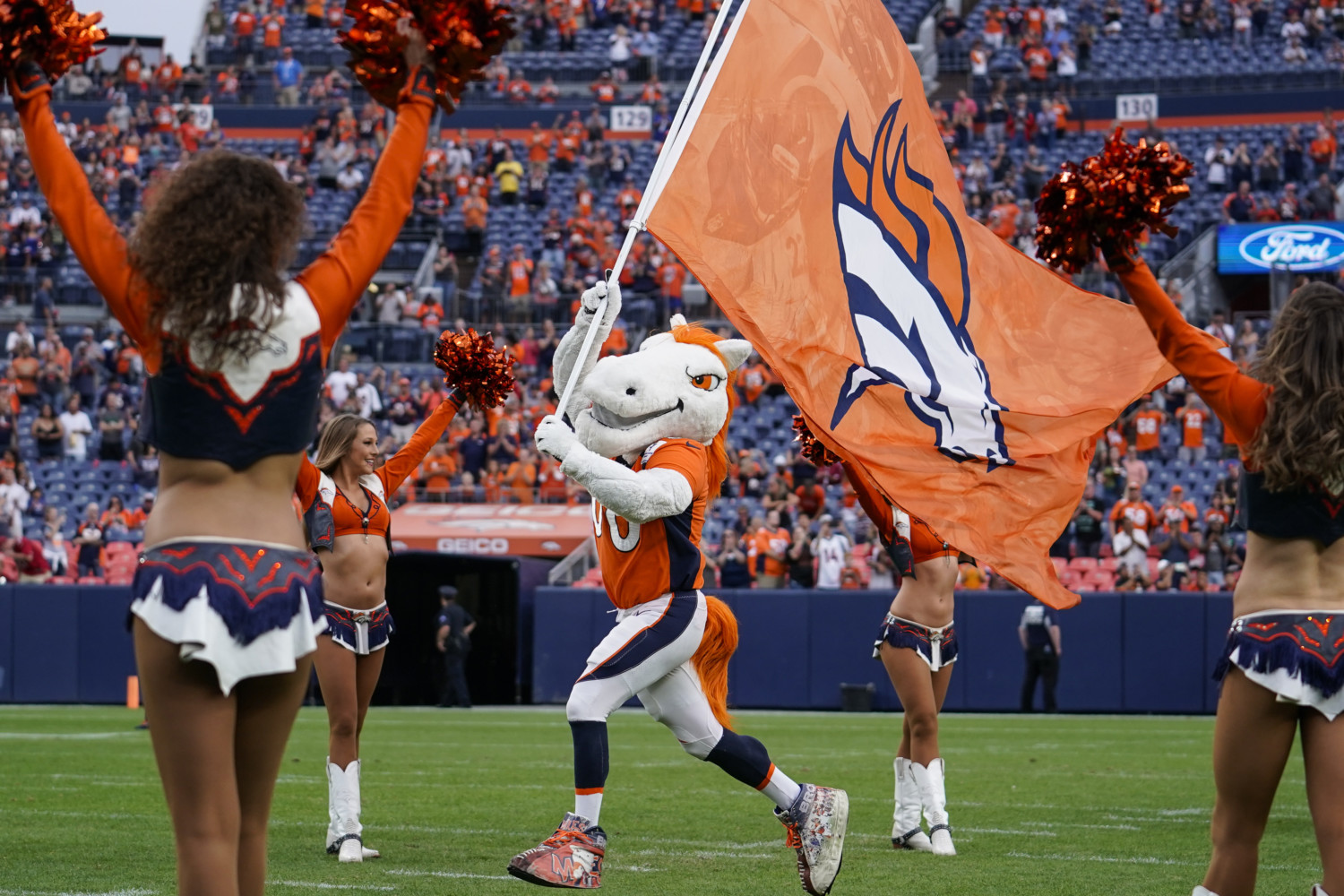
Detroit Lions
While wild horses have certainly been known to run in Colorado, it’s unlikely a roaming lion has ever called Detroit home. That didn’t stop the team’s former owner, George Richards, from naming his franchise after that intimidating cat. After relocating the team from Portsmouth, Ohio, to the Motor City in 1934, he changed its name from the Spartans to the Lions, taking inspiration from the town’s MLB team. “It made sense with the popularity of the Detroit Tigers,” Richards reportedly said, boasting that his team would be “king of the NFL” just as the lion was the “king of the jungle.”
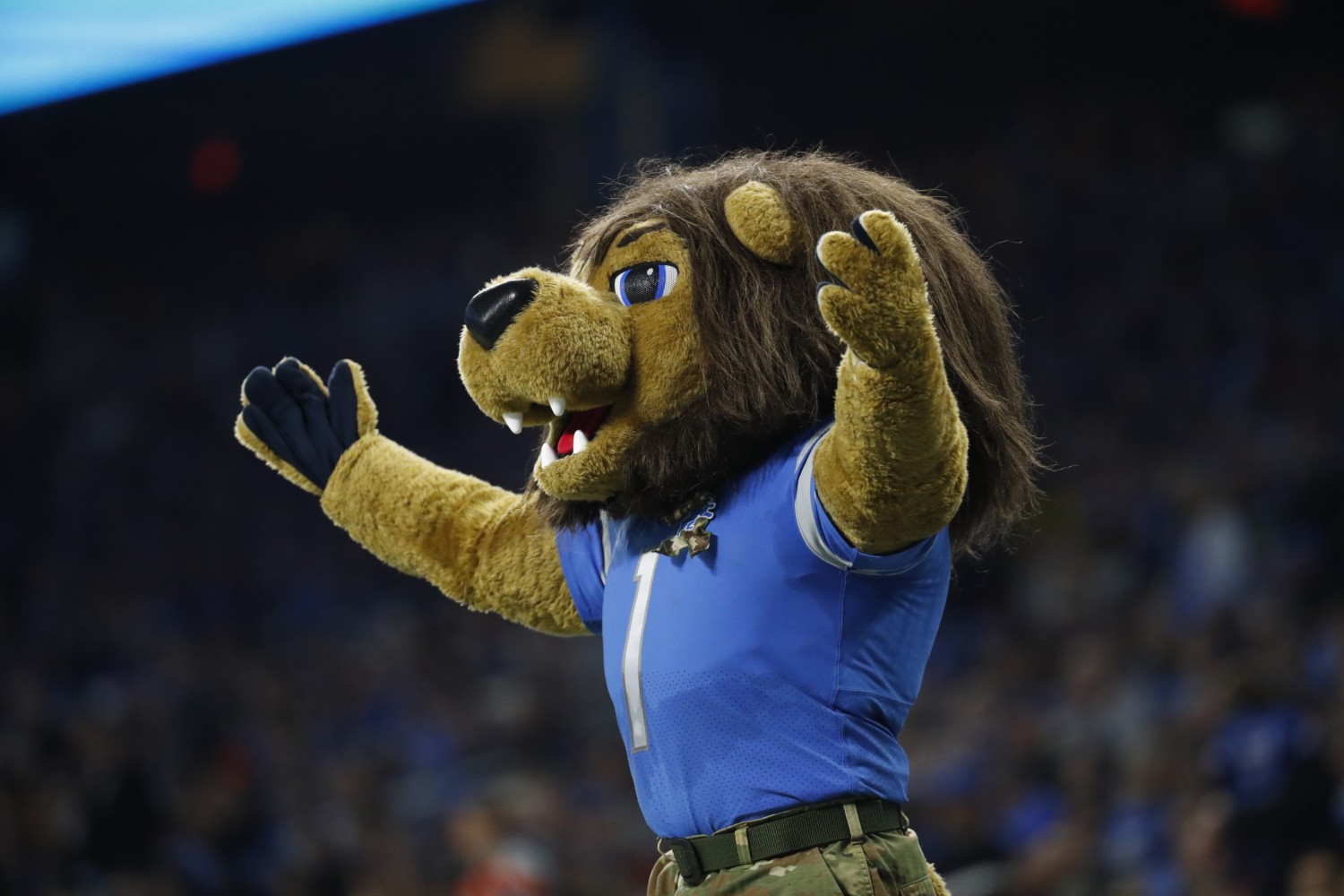
Green Bay Packers
One of the most unique team names you’ll find in pro sports, the Packers trace that monicker to their legendary founder, Curly Lambeau. The Wisconsin icon was working for a meatpacking firm called the Indian Packing Company when he started a football team in 1919. Lambeau asked the company to sponsor his venture and they agreed, which led him to call the franchise the Acme Packers in 1921 — after Acme Packing bought Indian Packing Company. Not long after, the franchise dropped Acme and became simply the Green Bay Packers.
Houston Texans
The reasoning behind the name of Houston’s football team is pretty obvious but it was far from the only serious option the franchise considered. When the city was granted the rights to house the NFL’s 32nd team in 1999 — beating out Los Angeles for the opportunity — focus groups and research sessions narrowed the field of names to three choices: Apollos, Stallions and Texans. While the Apollos would’ve been pretty cool as a nod to Houston’s deep ties to the space program, the Texans won the ownership’s vote.
On a side note, the Chiefs were actually the Dallas Texans for a couple of seasons before they landed in Kansas City, but we’ll get to that in a minute.
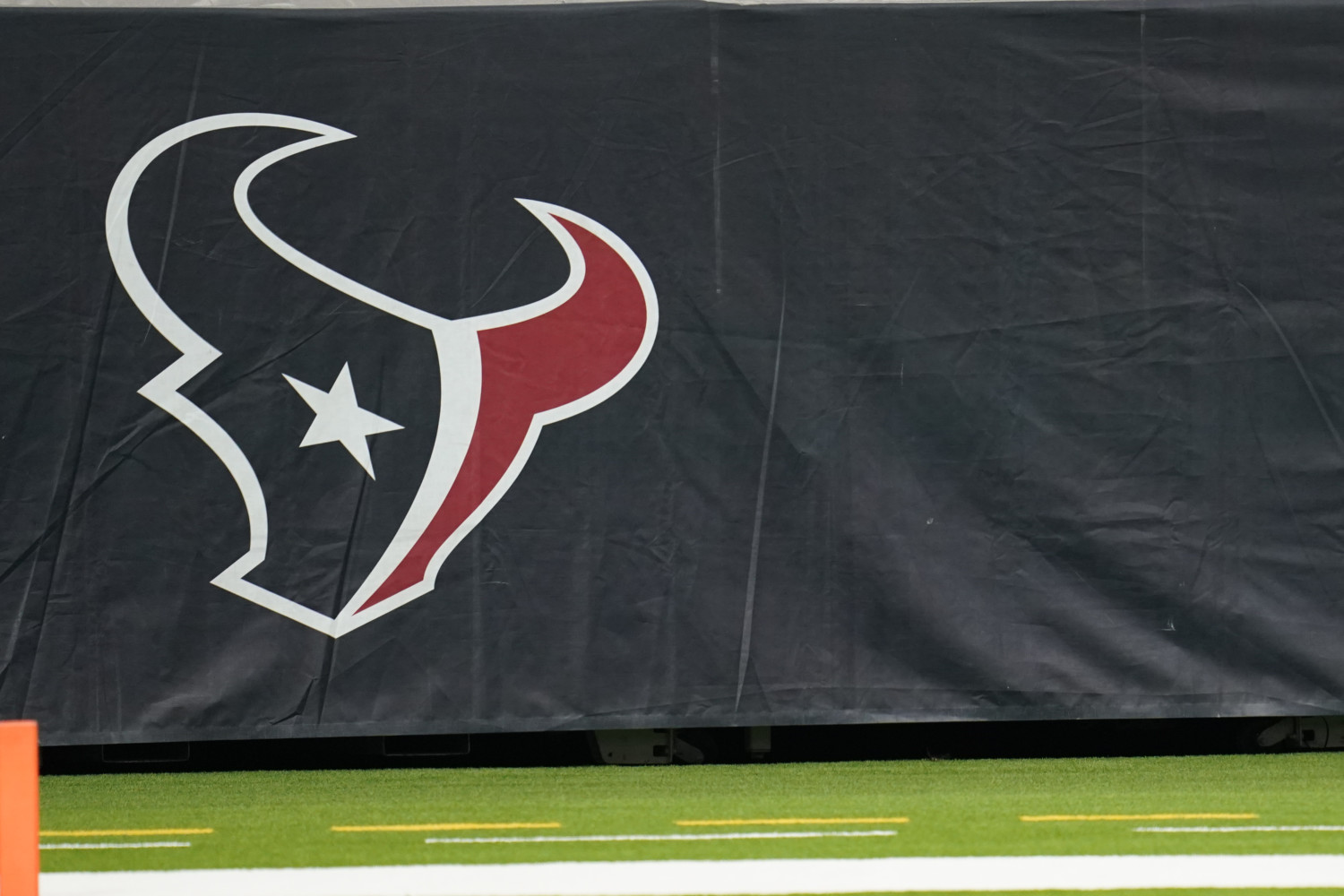
Indianapolis Colts
Indiana’s NFL franchise traces its name back to its days as the Baltimore Colts, which they were from 1953-1983. The name doesn’t make a ton of sense in Indianapolis, which is a city that has more to do with motorsports than equestrian sports, but it was perfect for Baltimore. The name was chosen due to that city being the host of the annual Preakness Stakes horse race, one of the three biggest American races in the sport. When the NFL came back to Baltimore in 1996, the new franchise tried to buy the name Colts back from owner Robert Irsay in Indianapolis but they couldn’t reach a deal.
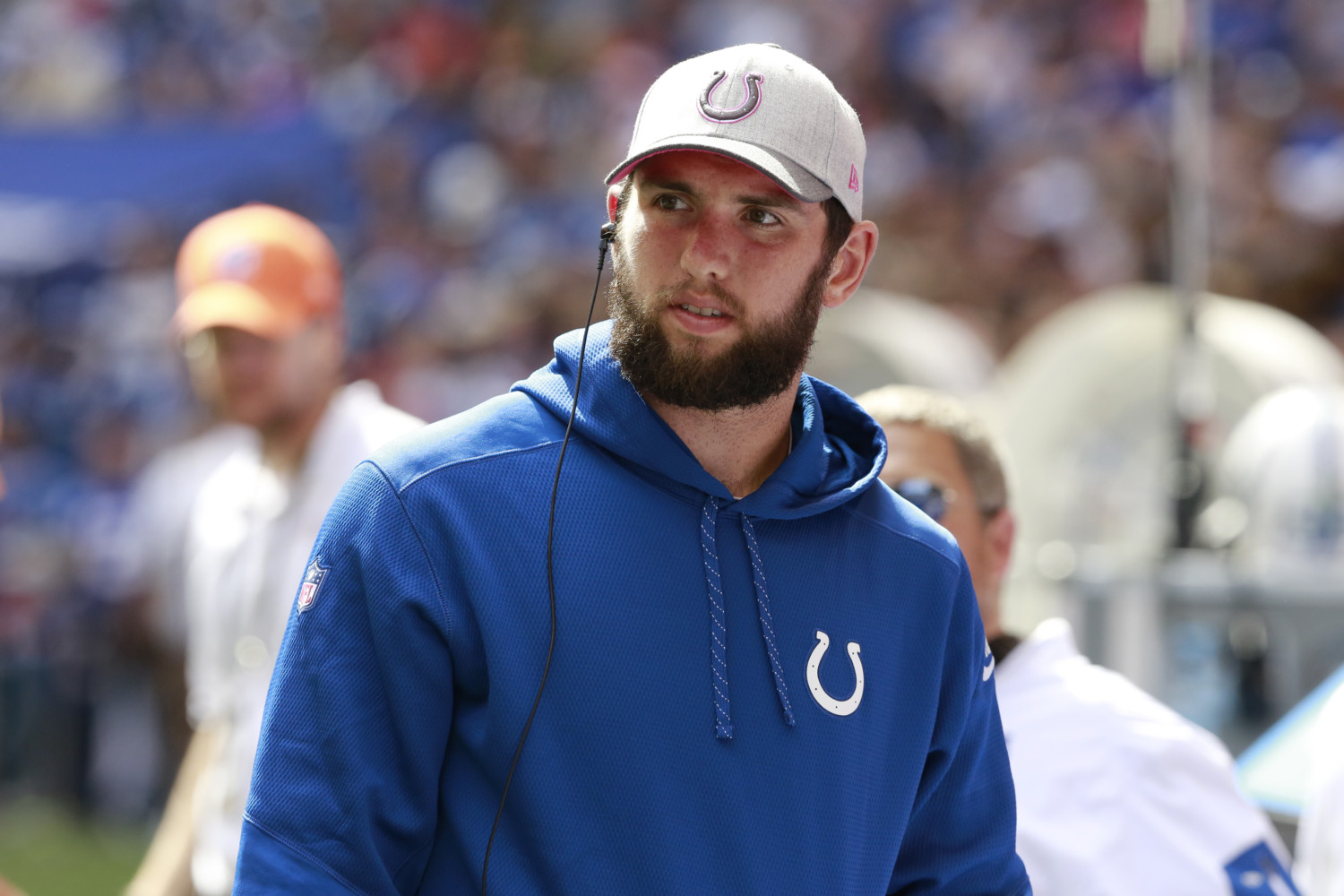
Jacksonville Jaguars
Unlike other recent expansion teams in the league, the Jacksonville Jaguars already had its name picked out before the city was even given the rights to an NFL franchise. The reasons could’ve been anything from the fact that wild jaguars were found across Florida in the past to the idea that it’s just a great example of alliteration, but the final choice once again came down to the fans. A poll of Jacksonville residents in the early 1990s saw Jaguars selected over the Panthers, Sharks and Stingrays.
So, if the people of Florida’s Atlantic Coast had chosen the Panthers, the Carolina Rhinos might actually be one of their rivals right now.

Kansas City Chiefs
As we mentioned before, the Chiefs were previously known as the Dallas Texans before they packed up and moved to Kansas City for the 1963 AFL season. Obviously, that name wasn’t going to fly in Missouri, so team owner Lamar Hunt chose a new one that had multiple meanings. The name Chiefs was chosen to honor both the Native American people of the central U.S. and the politician who helped bring the team there. H. Roe Bartle, the beloved mayor of Kansas City who convinced Hunt to settle his team there, was nicknamed “The Chief.”
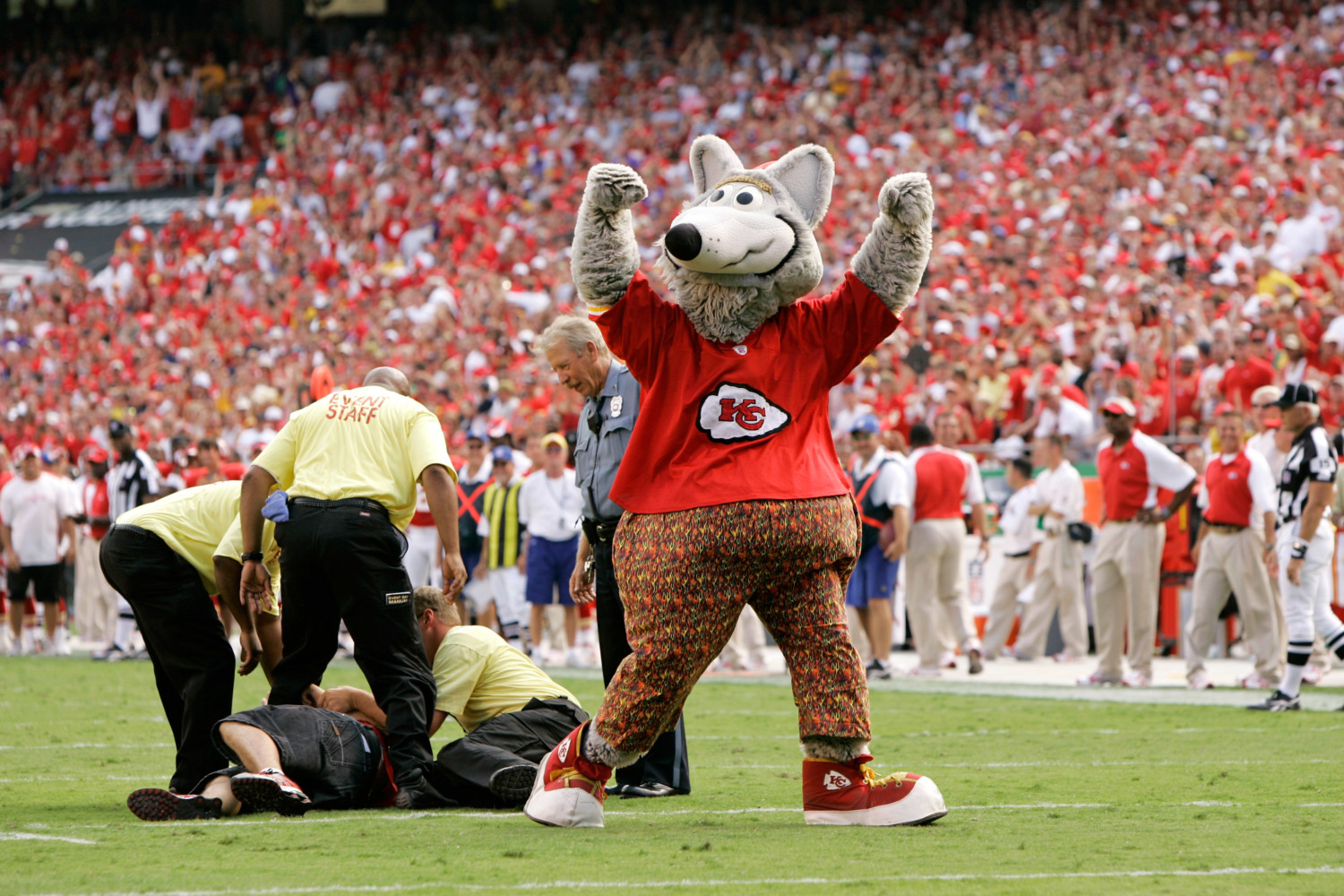
Las Vegas Raiders
When the Raiders were founded in 1960 as a charter AFL team in Oakland, California, a different name was originally announced for the franchise. A naming contest was held and the winning choice was the Oakland Señors, as suggested by a member of the Oakland Police Department, who were set to wear orange and black jerseys. The team’s ownership reversed course quickly, however, and instead went with the name Raiders, which was suggested by a man named Kendrick Martin.
“‘Raiders’ implies early, sustained offense, carrying the fight to the opponents,” Martin reportedly said of his winning idea.
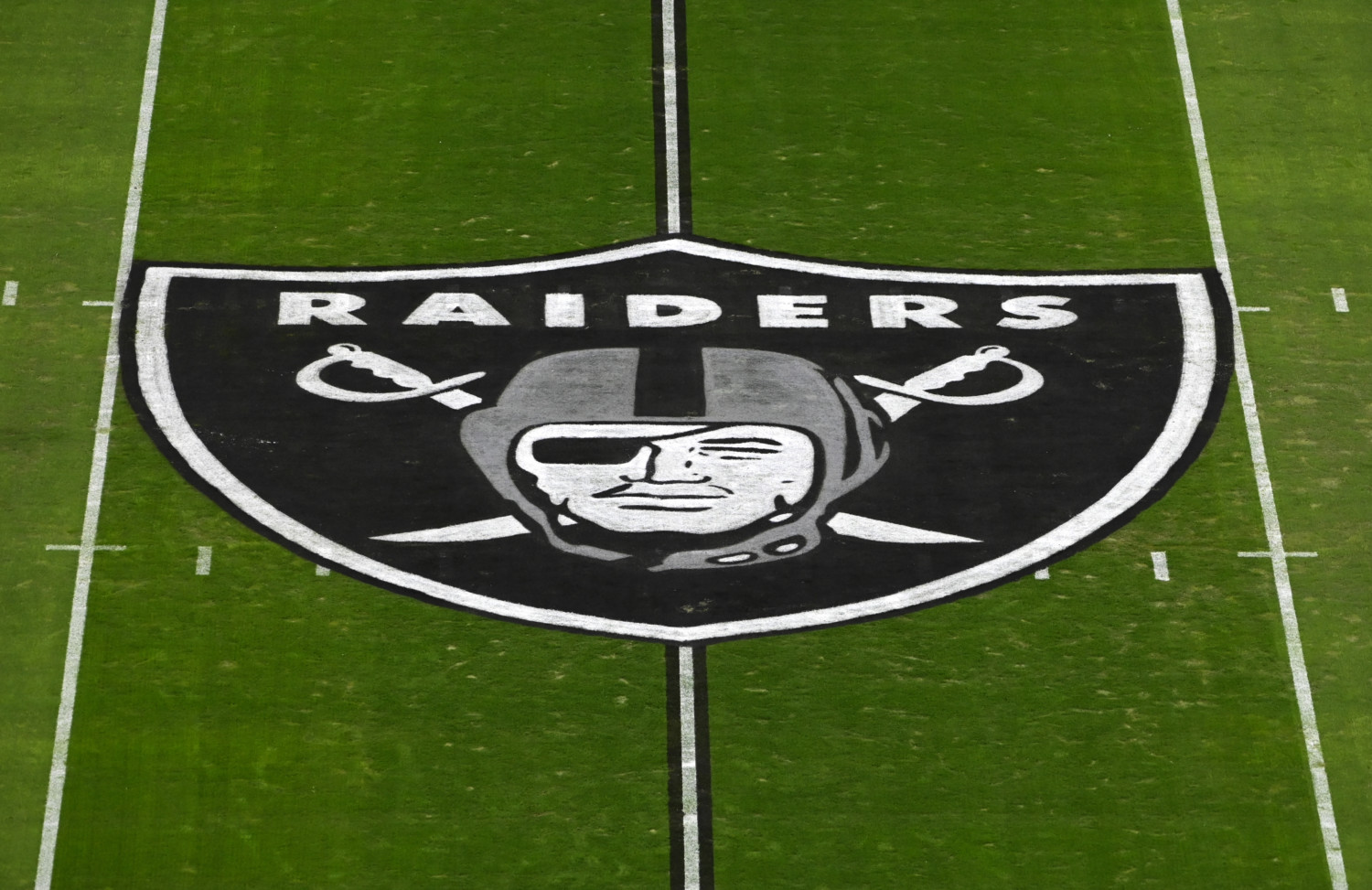
Los Angeles Chargers
Another charter AFL franchise that launched in California, the Chargers debuted in Los Angeles in 1960 before moving to San Diego and recently coming back to L.A. Hotel executive Barron Hilton founded the team and there’s a long-standing tale that he named the team after his fondness for using a credit (aka charge) card, but that’s a myth. Hilton said in 2009 that the name came from a naming contest and was suggested because of the ubiquitous “Charge!” roar that’s yelled after a trumpet fanfare at sporting events.
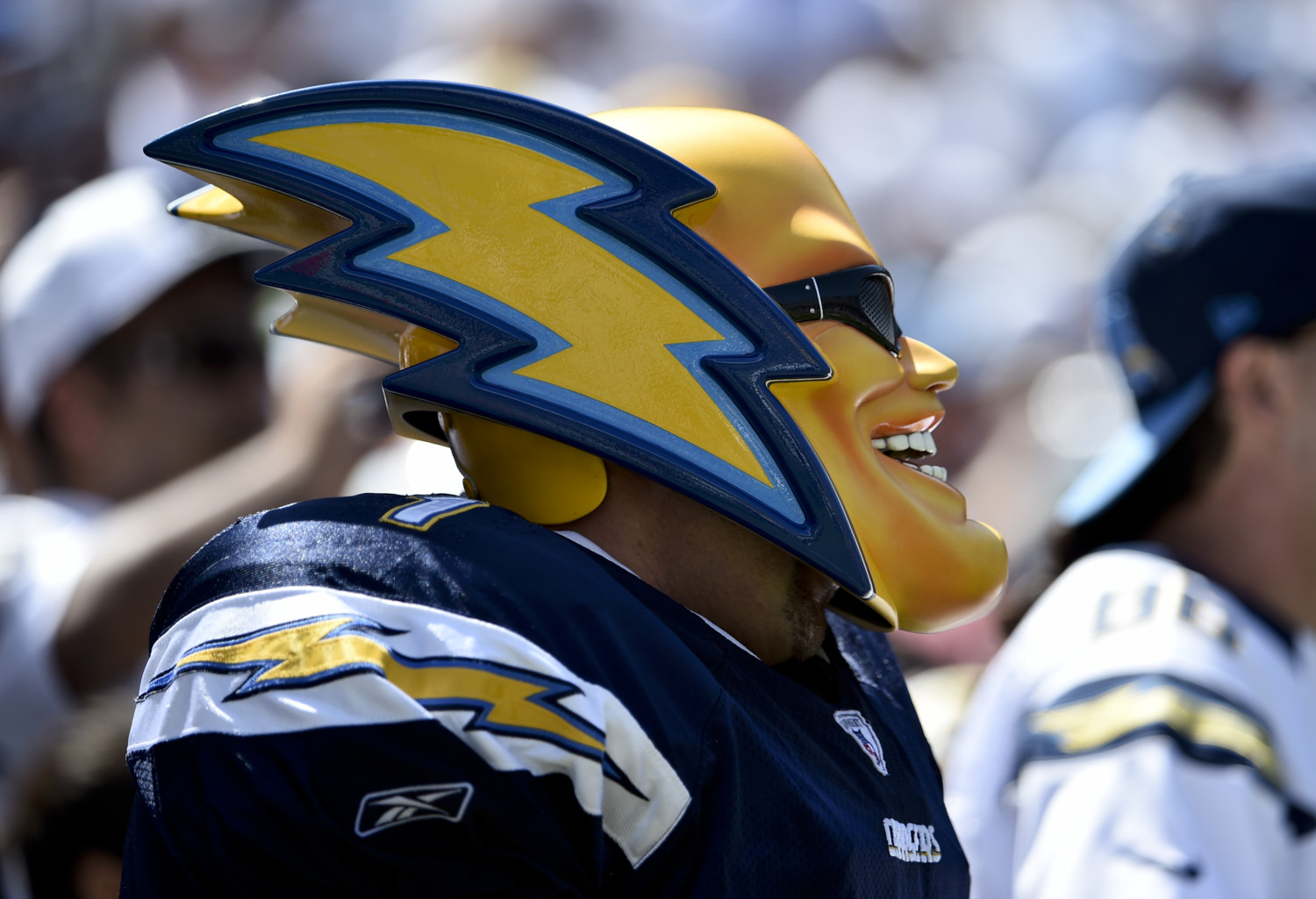
Los Angeles Rams
The Rams go all the way back to 1936 as a professional football team but their origin was thousands of miles away. The team was founded as the Cleveland Rams and was given that rugged name by owner Homer Marshman and general manager “Buzz” Wetzel. Wetzel reportedly suggested the name because he was a fan of the Fordham Rams college football team and Marshman thought it sounded great.
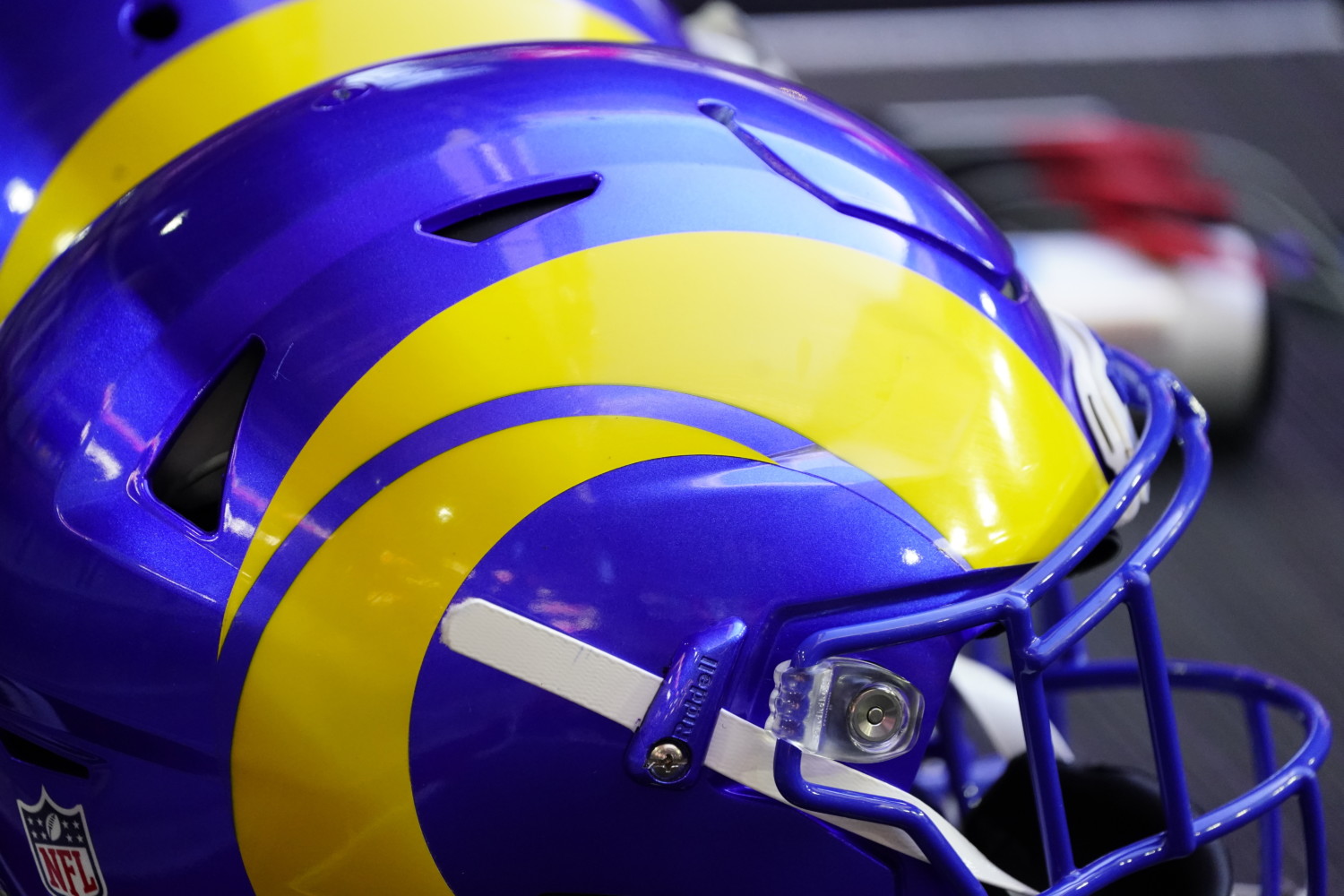
Miami Dolphins
When Miami was given an AFL expansion franchise in 1965, the team’s brass decided to turn the job of naming it over to the eager fans — with a sweet prize attached. In addition to having the honor of naming a professional sports team, the winning submission would get lifetime tickets to its games. Out of thousands of submissions, more than 800 fans suggested the Dolphins, but Marjorie Swanson’s was declared the winning pick after she won a guess-the-final-score contest featuring all the finalists in a November 1965 game.

Minnesota Vikings
Minnesota is home to more Norwegians and Swedes than any place outside of Scandinavia, so what else would their football team be called? Those close ties to Nordic culture led Bert Rose, the franchise’s original general manager, to suggest the name Vikings when the state was given an NFL expansion team in 1960. Rose, who also suggested the team’s iconic purple jerseys, liked the name Vikings because he felt it represented strength and also honored Minnesota’s link to Scandinavia.
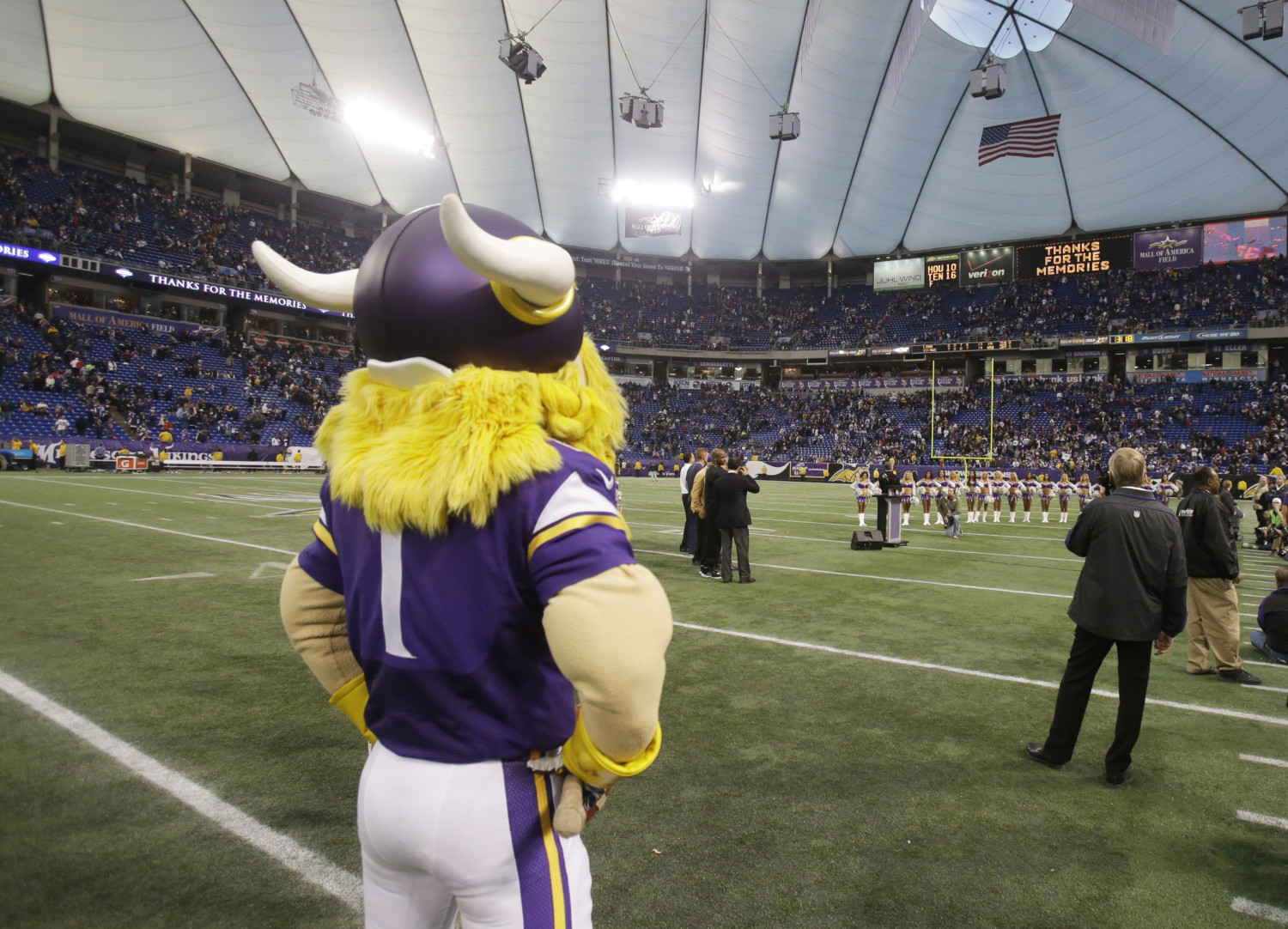
New England Patriots
When this charter AFL franchise debuted in 1960, it carried a name selected by a group of sportswriters. The panel chose the name from a list of suggestions made by fans, of which 74 different people had contributed the winning one. The Boston Patriots, as they were called for their first decade, got that fitting name because of the city’s deep ties to the American Revolution. In 1971, the franchise moved about 30 miles south to Foxboro, Massachusetts, and was renamed the New England Patriots.
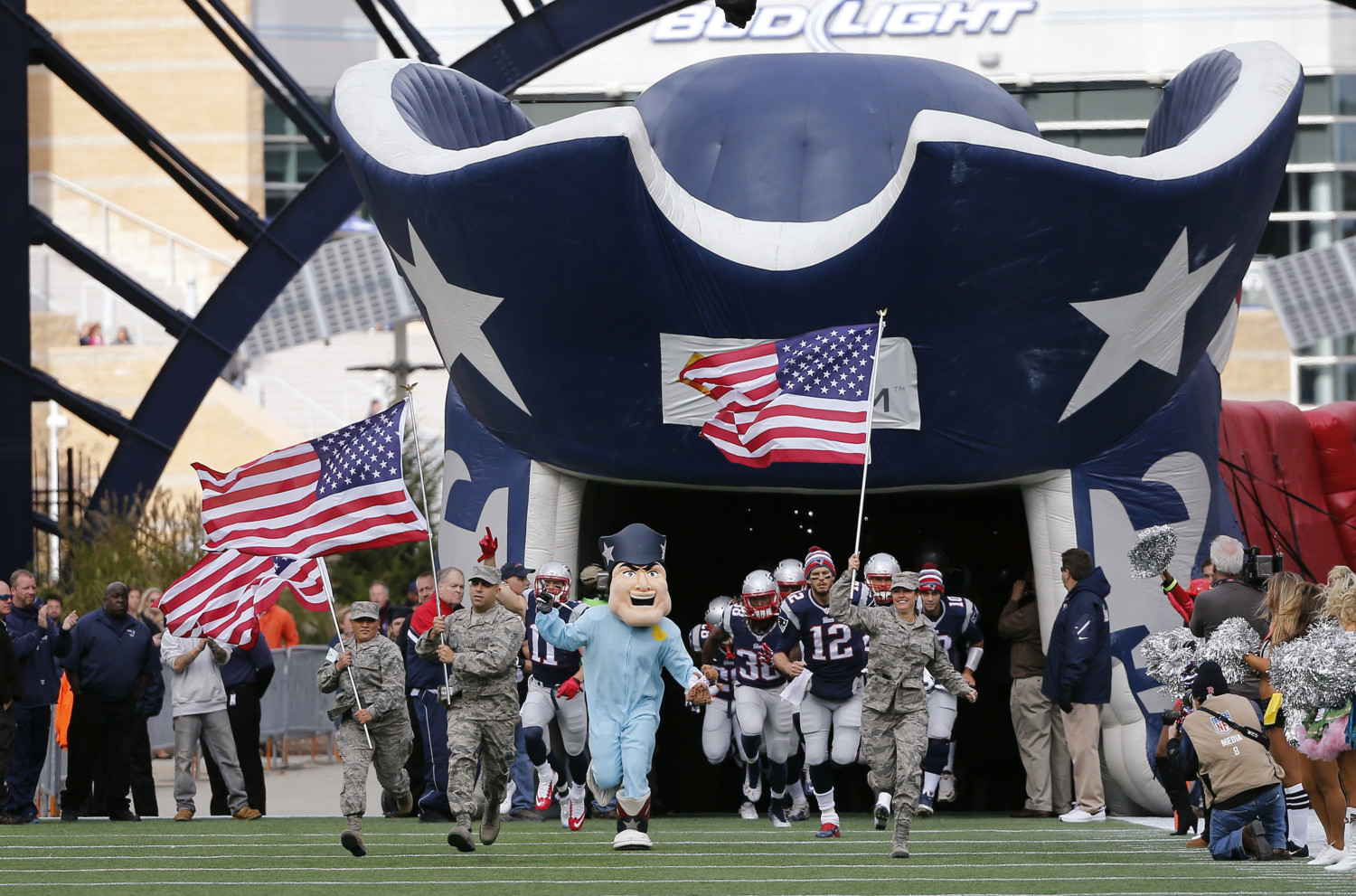
New Orleans Saints
In 1967, the city of New Orleans was granted a franchise in the NFL, which had just finished a groundbreaking merger with the competing AFL to form the league we know today. The team was named the Saints because of the large presence of the Catholic Church in the city, while their black and gold colors were dedicated to the oil industry, which also looms large there. The team’s creation was not announced to the public until Nov. 1, aka All Saints Day, and Saints co-founder Dave Dixon reportedly asked for the blessing of the Archdiocese of New Orleans before settling on the name.
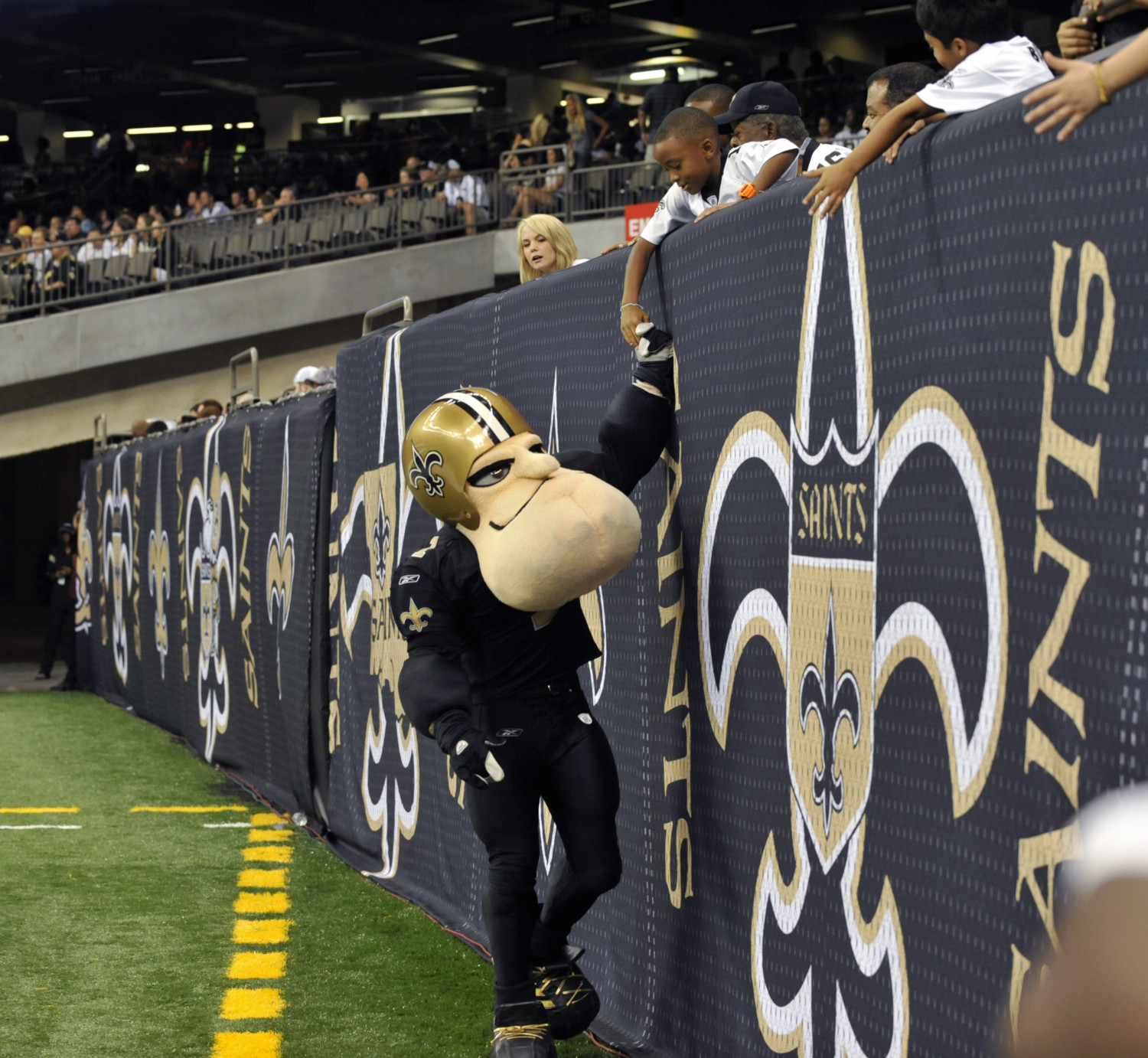
New York Giants
When the oldest of New York City’s two NFL squads was founded in 1925, the metropolis was also home to MLB’s Giants. The new franchise originally played its games in the same stadium as baseball’s New York Giants, so it was named in honor of them. Officially, the NFL franchise is still known as the New York Football Giants — a change made to differentiate them from the MLB team — although the baseball Giants moved to San Francisco in 1958.
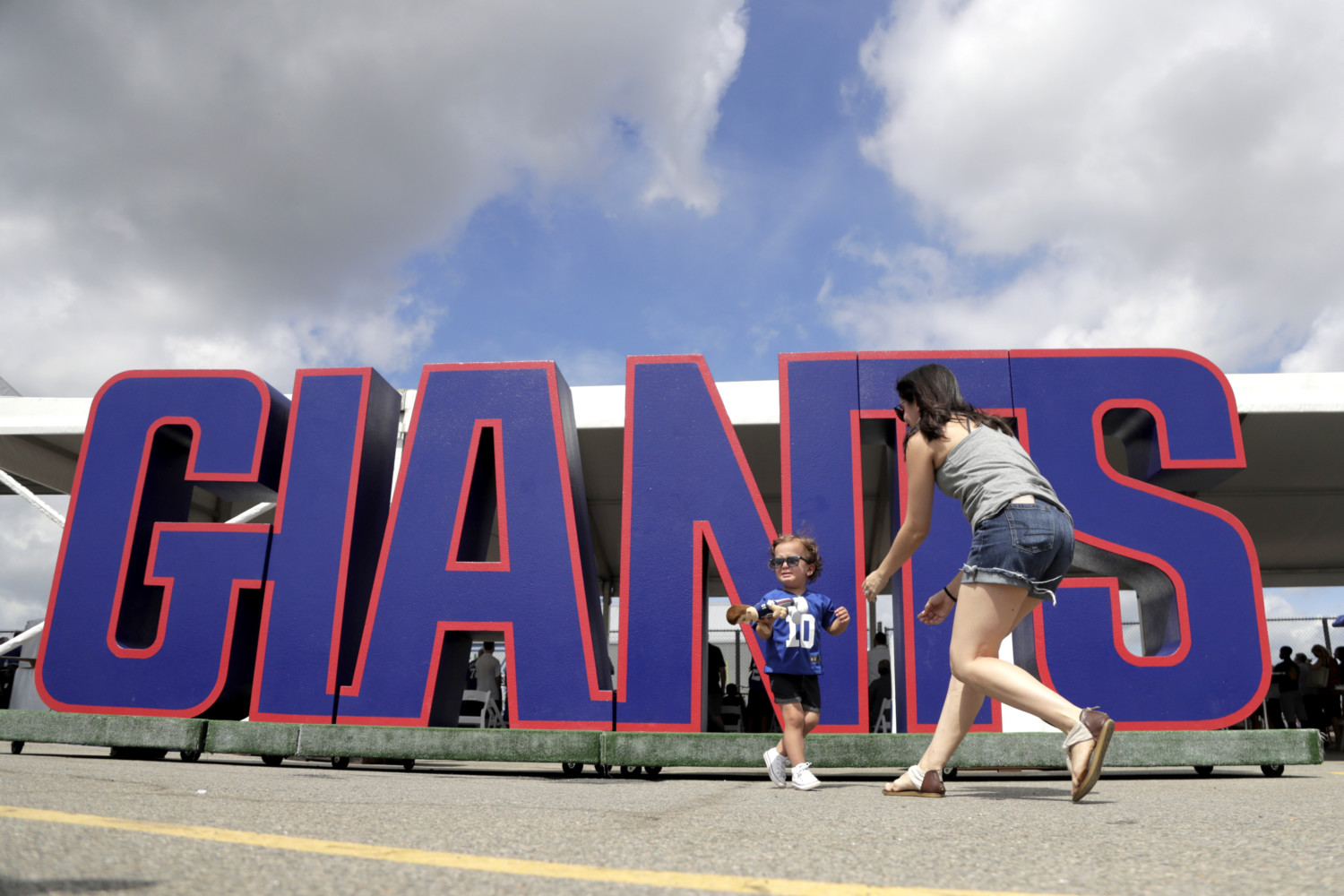
New York Jets
For their first few seasons in the AFL, New York City’s second successful pro football franchise was called the New York Titans. That name, along with their blue-and-gold uniform scheme, was scrapped in 1963 as the team became known as the New York Jets. The original name was chosen as a jab at the Giants — since Titans are bigger than Giants — while the new one was selected as a tribute to the fast-advancing technology of air travel in the early 1960s. The name also made sense given the franchise’s new stadium location, which was between the city’s two major airports.
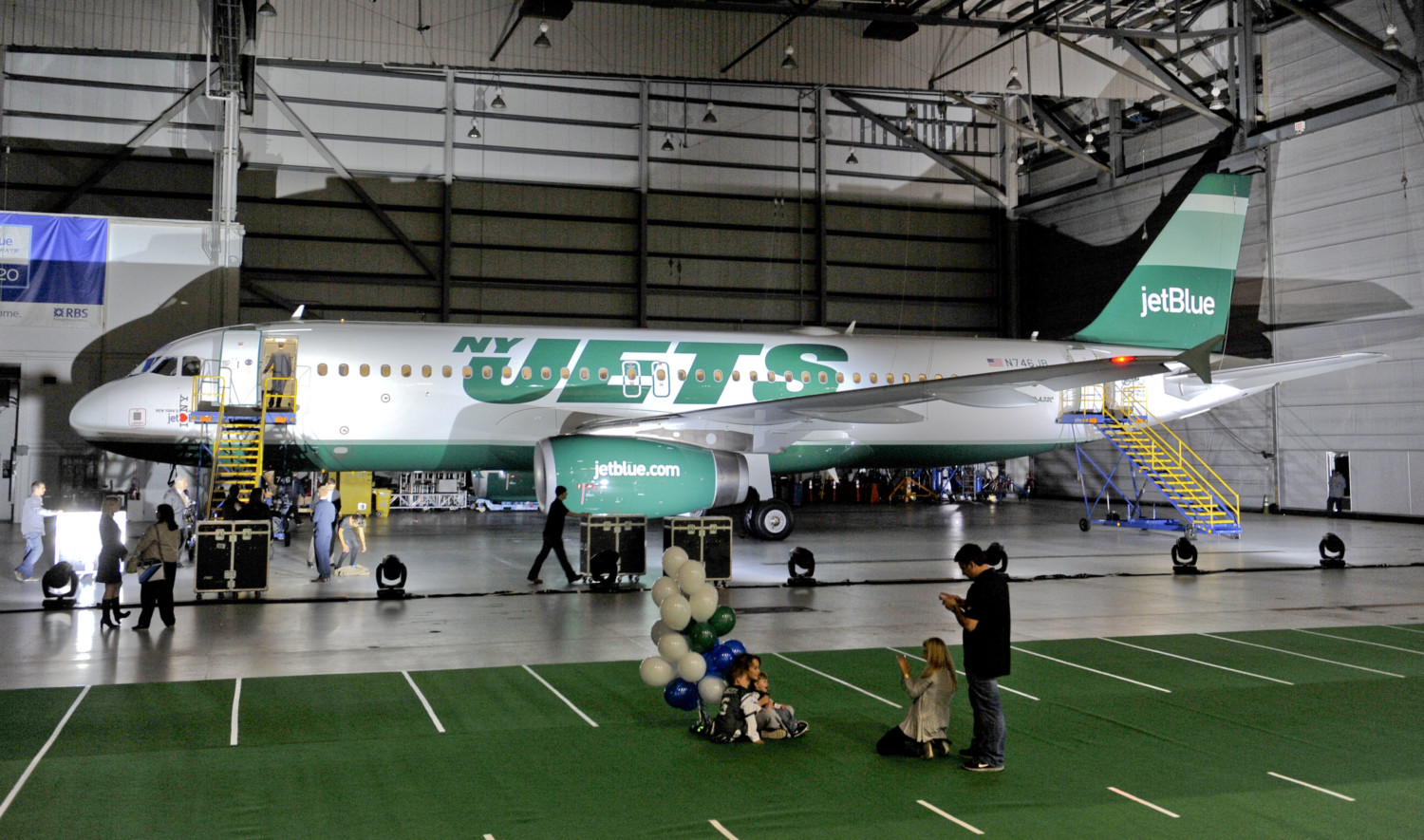
Philadelphia Eagles
Like Boston, Philadelphia is a city that has rich ties to the American Revolution, which would seem to make the Eagles an obvious name for its football team. However, the reason the franchise got that mascot is a little more complicated than a simple connection to patriotism. When founder Bert Bell established Philadelphia’s NFL team in 1933, President Franklin Roosevelt’s National Recovery Administration was trying to pull the country out of the Great Depression. The logo for that government organization was an eagle, which inspired Bell to use that for his team’s name since he liked the sense of optimism it created.

Pittsburgh Steelers
Pittsburgh has been part of the NFL’s fabric since 1933 but its iconic football team was not always known as the Steelers. For its first seven seasons, the team was called the Pittsburgh Pirates, in an ode to the city’s even older baseball team. In 1940, legendary owner Art Rooney wanted to change the team’s identity and accepted submissions from thousands of fans. A total of 21 people suggested the team be called the Steelers, recognizing Pittsburgh’s robust steel industry, and were each awarded with a pair of season tickets when Rooney chose that title.
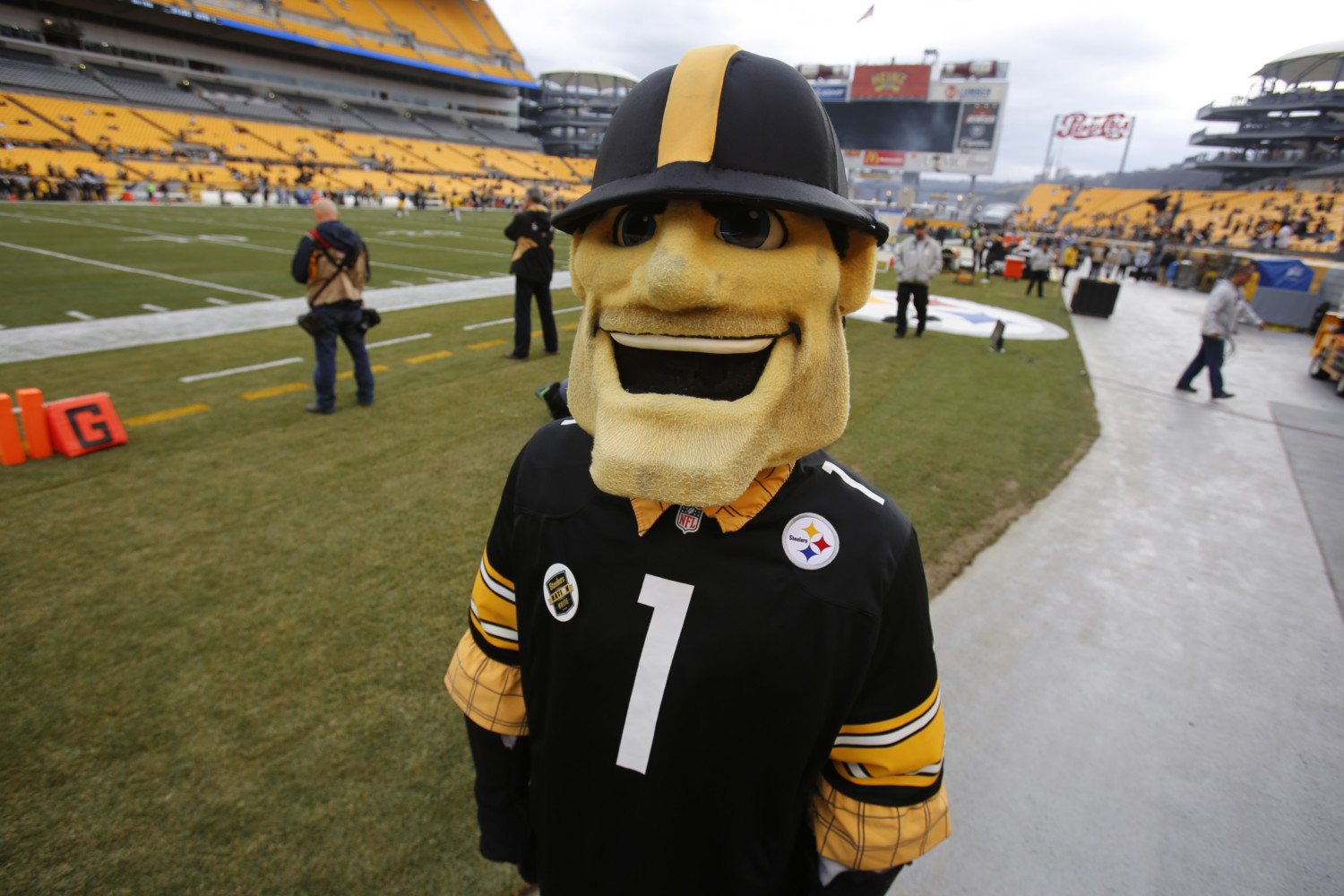
San Francisco 49ers
This is one of those team names that likely makes zero sense to foreign NFL fans or those not versed in modern American history but it’s a fitting one when you know the origin. San Francisco’s franchise was founded in 1946, when the idea of spreading pro sports to the Western shore was still a shaky one. That sense of adventure and risk led the team to be called the 49ers, which was the nickname used for people who traveled west in 1849 to dig for gold. Much like the NBA’s Philadelphia 76ers, this one is a direct reference to an important year in American history.

Seattle Seahawks
When Seattle was prepping to get its NFL team ready to join the league in 1975, the owners held a naming contest and were stunned by how many suggestions poured in. More than 20,000 total entries were submitted with more than 1,700 different team names put forward for consideration. Everything from the Aero-Techs to the Dreadnaughts to the Puddle Jumpers was on the table but 153 different entrants wrote down “Seahawks.” Those people each won a prize package that included tickets to a preseason game, a certificate and a special team yearbook.
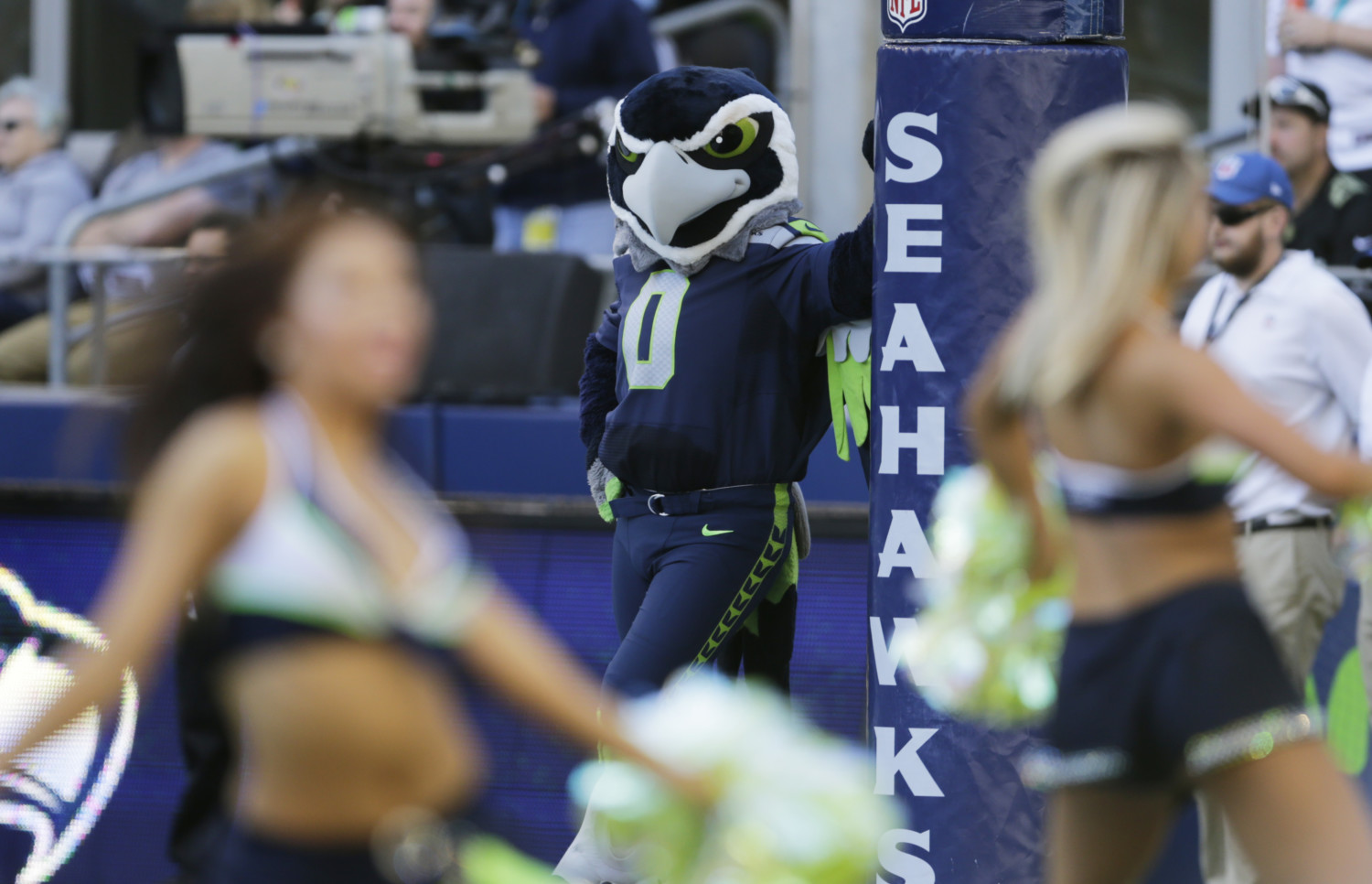
Tampa Bay Buccaneers
The Tampa, Florida area was given an NFL franchise in 1974, almost two years before its first game would kick off. This gave the front office plenty of time to choose a good name. Of course, like many owners around the league, founder Hugh Culverhouse asked fans what they’d like to see their team be called. Buccaneers was eventually chosen as the winning idea because of its ties to Florida’s history of conquistadors, shipwrecks and other seafarers. In true pirate fashion, the nearby University of South Florida nearly claimed the name for themselves in 1962 before it could be stolen by the NFL team, but they settled on the Golden Brahman. Then, in 1982, the athletic department at the school changed it to the Bulls.
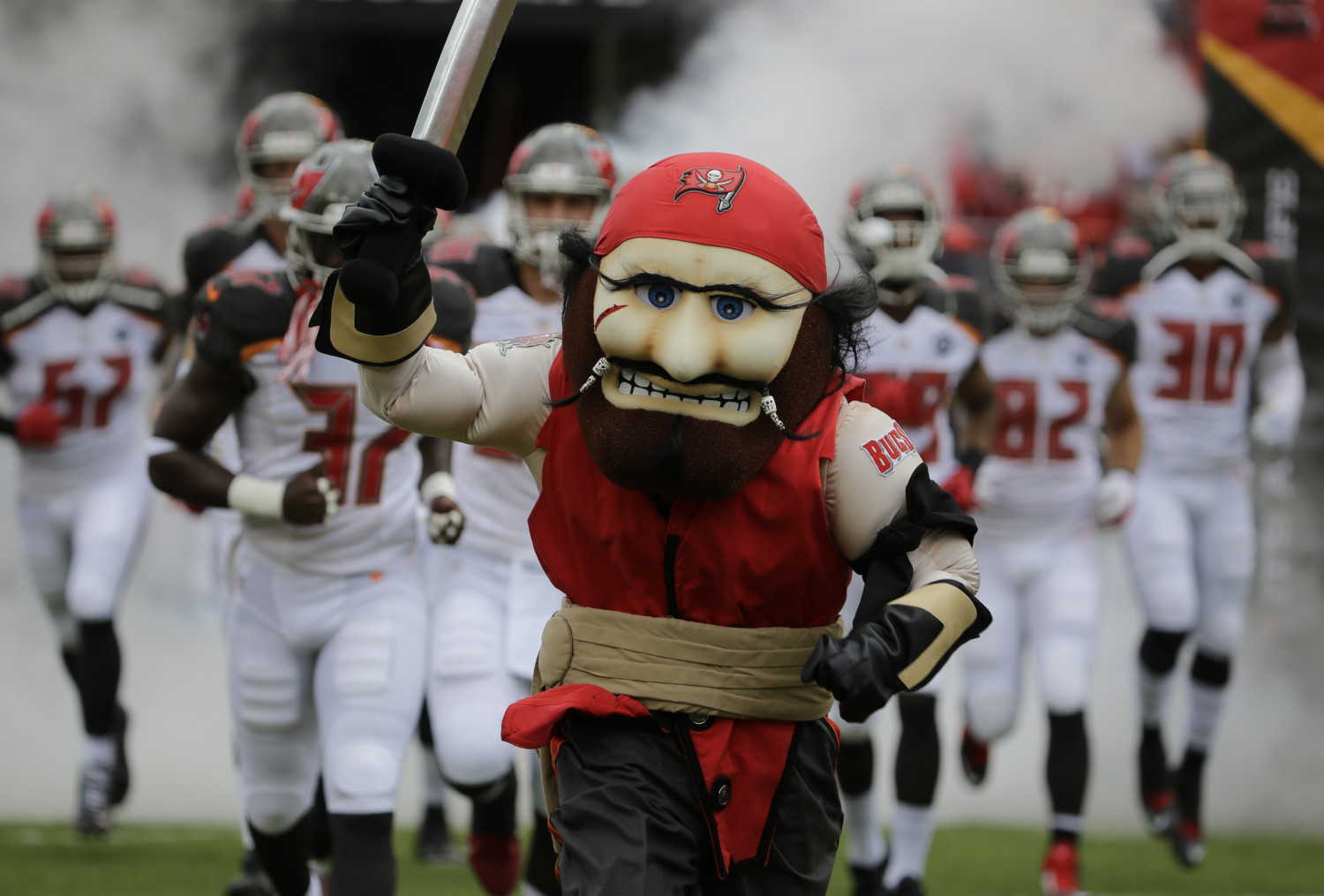
Tennessee Titans
In a list by Bleacher Report that ranked all 32 of the NFL’s team names, the website rated the Titans as the most intimidating of them all. Of course, the franchise originally had a much different name. The charter AFL team was called the Oilers from 1960-1997, all but two seasons of which saw them playing in oil-rich Houston. Upon moving to Nashville, the team was renamed the Titans in a tribute to the town’s nickname, “The Athens of the South.”
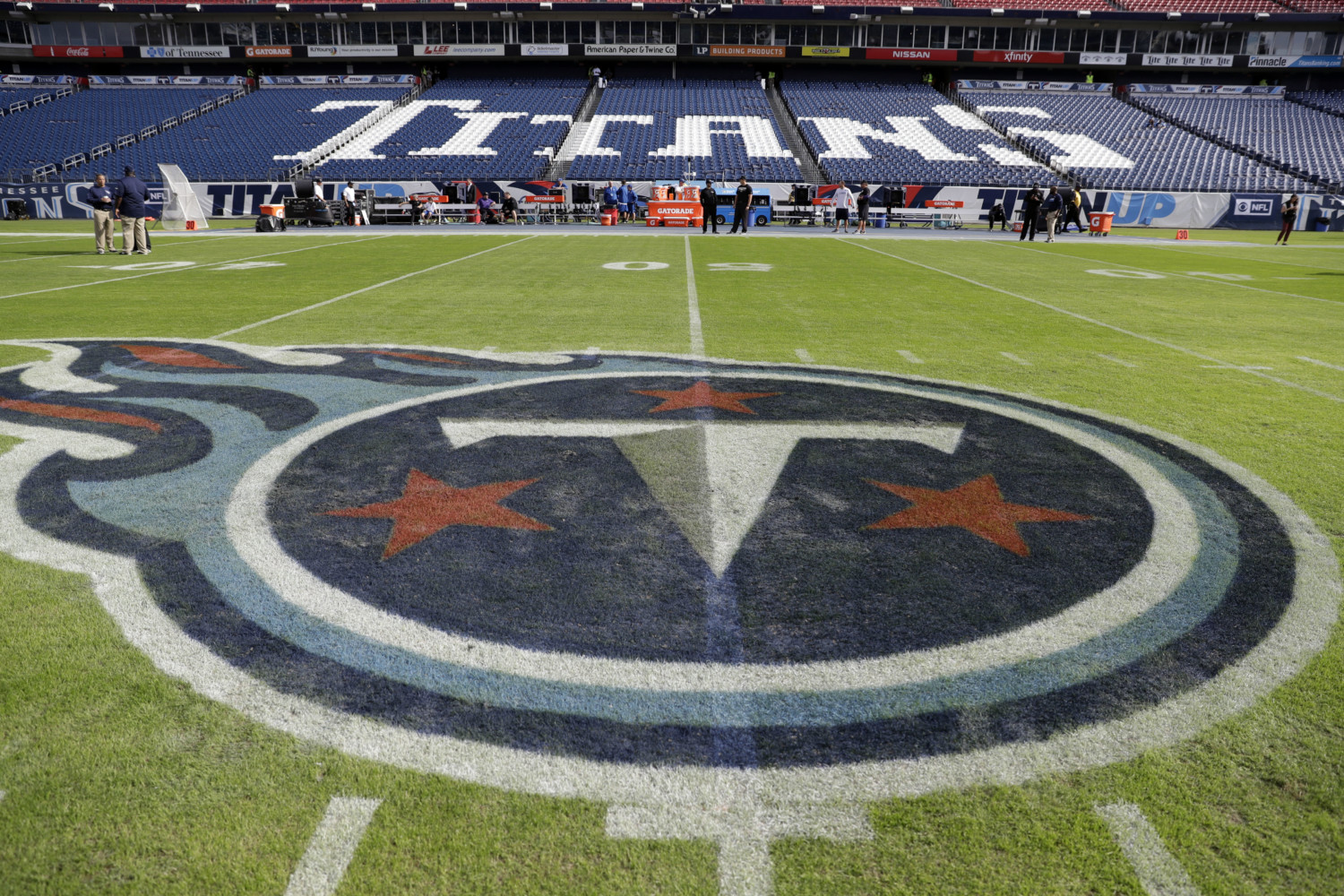
Washington Football Team
We’re still waiting to see what the Washington Football Team will choose as its permanent title going forward but this uninspired placeholder was put in place in 2020 following decades of complaints about its former name. The team launched in 1932 as the Boston Braves but changed to the Redskins when it moved across town in 1933, in order to establish a connection with the Boston Red Sox. Oddly, then-owner George Marshall chose the racist name as a “tribute” to the team’s coach, William Henry “Lone Star” Dietz, who was Native American, and the fact that he had signed numerous Native American players to the roster that year. The team moved to Washington, D.C. in 1937.
